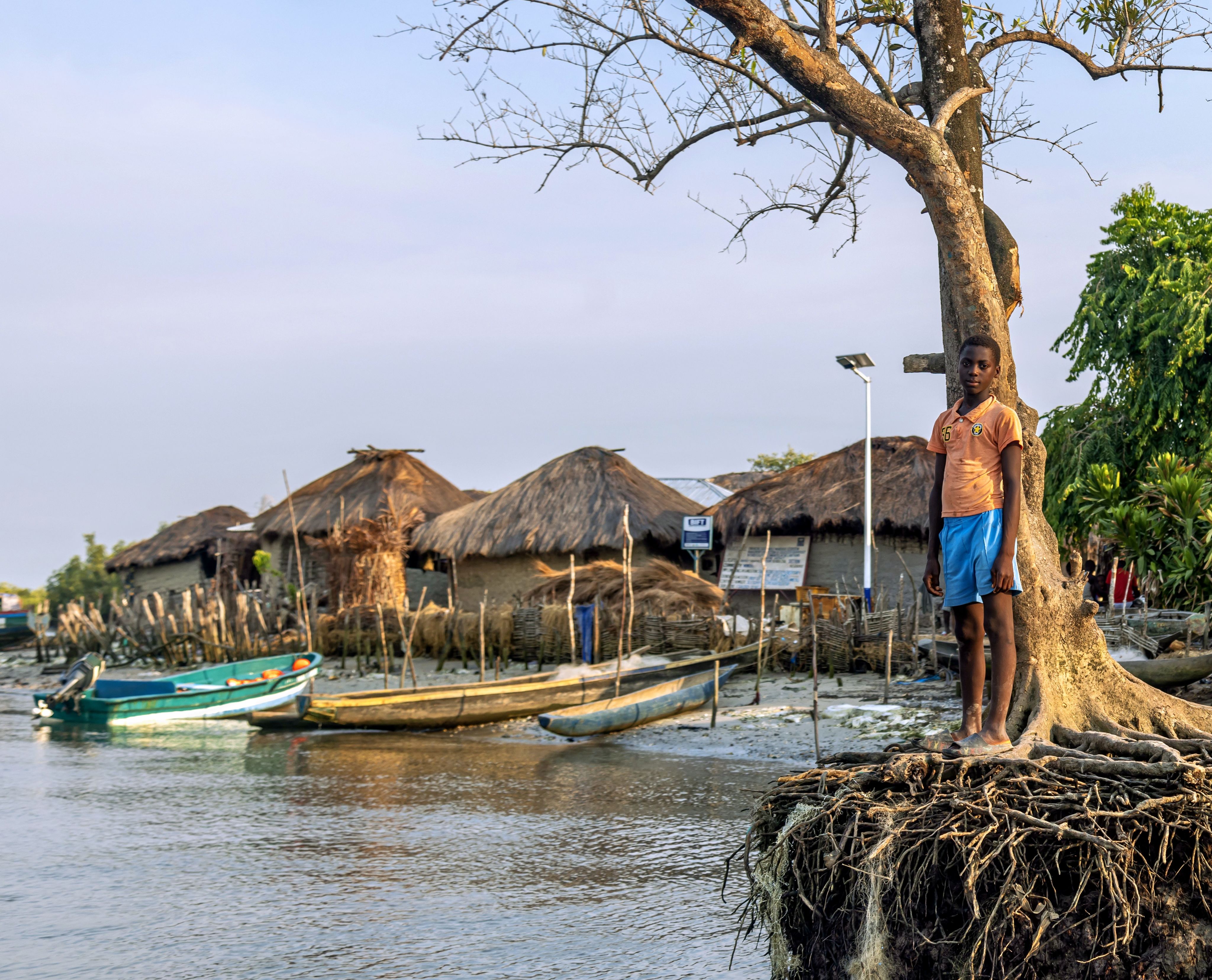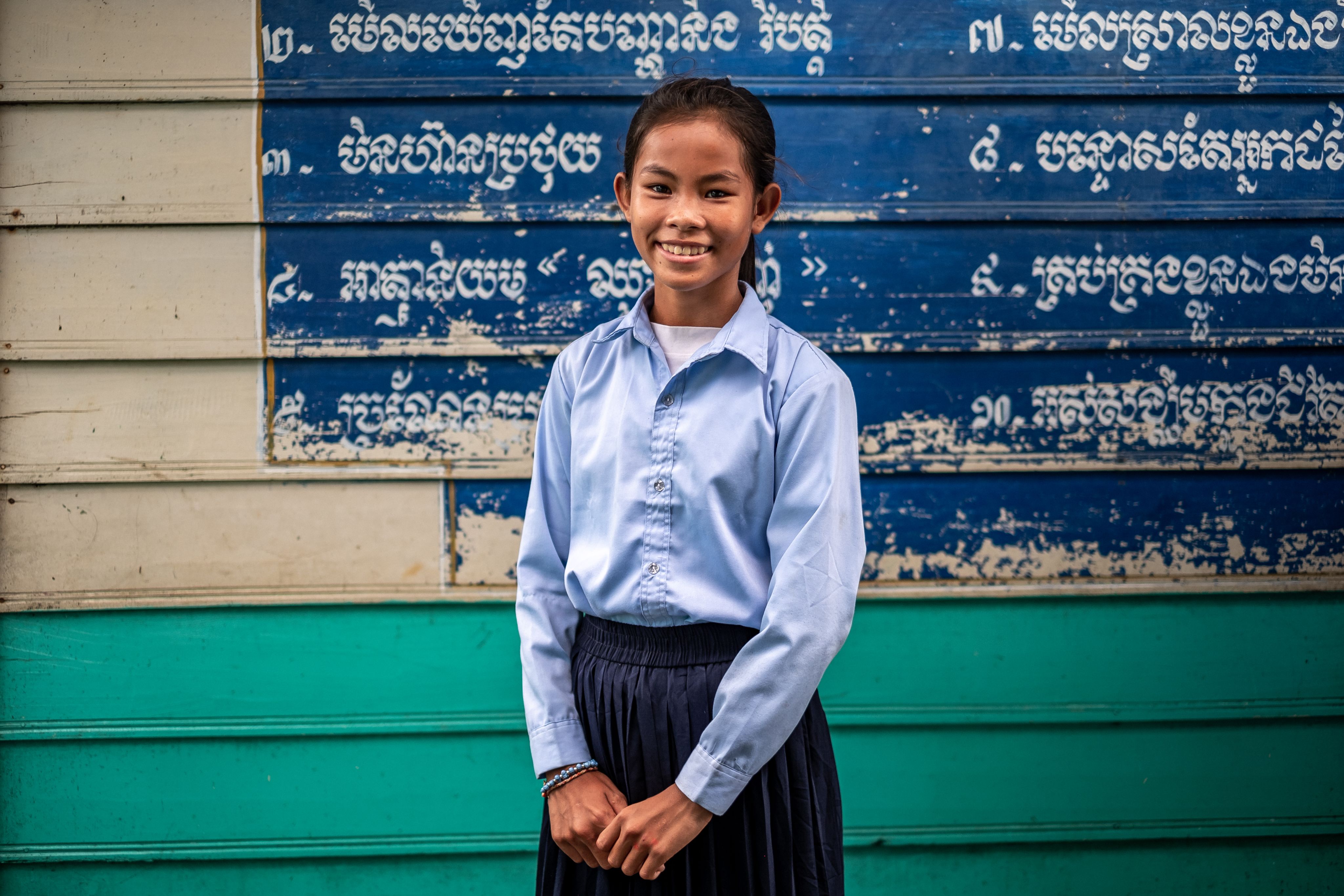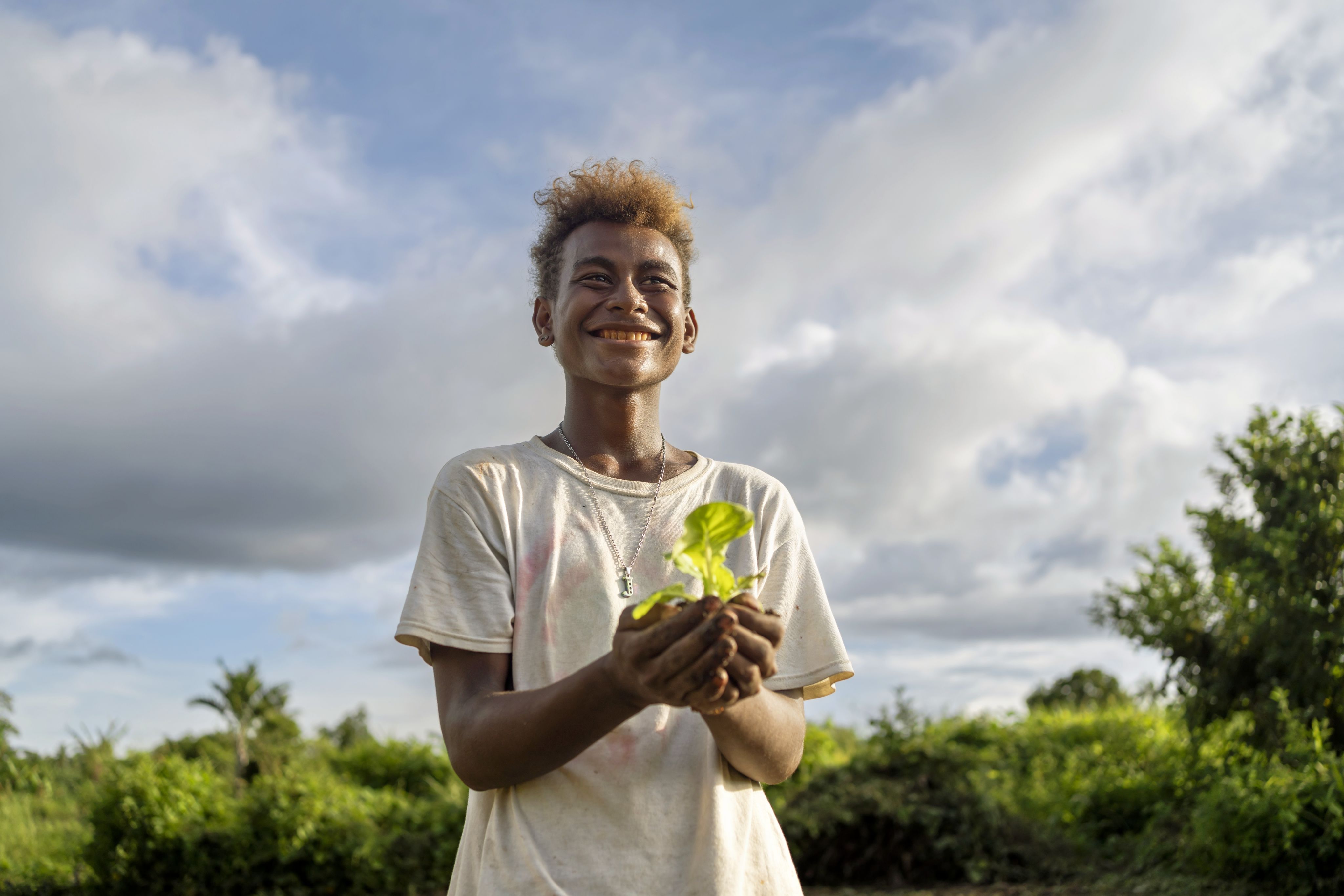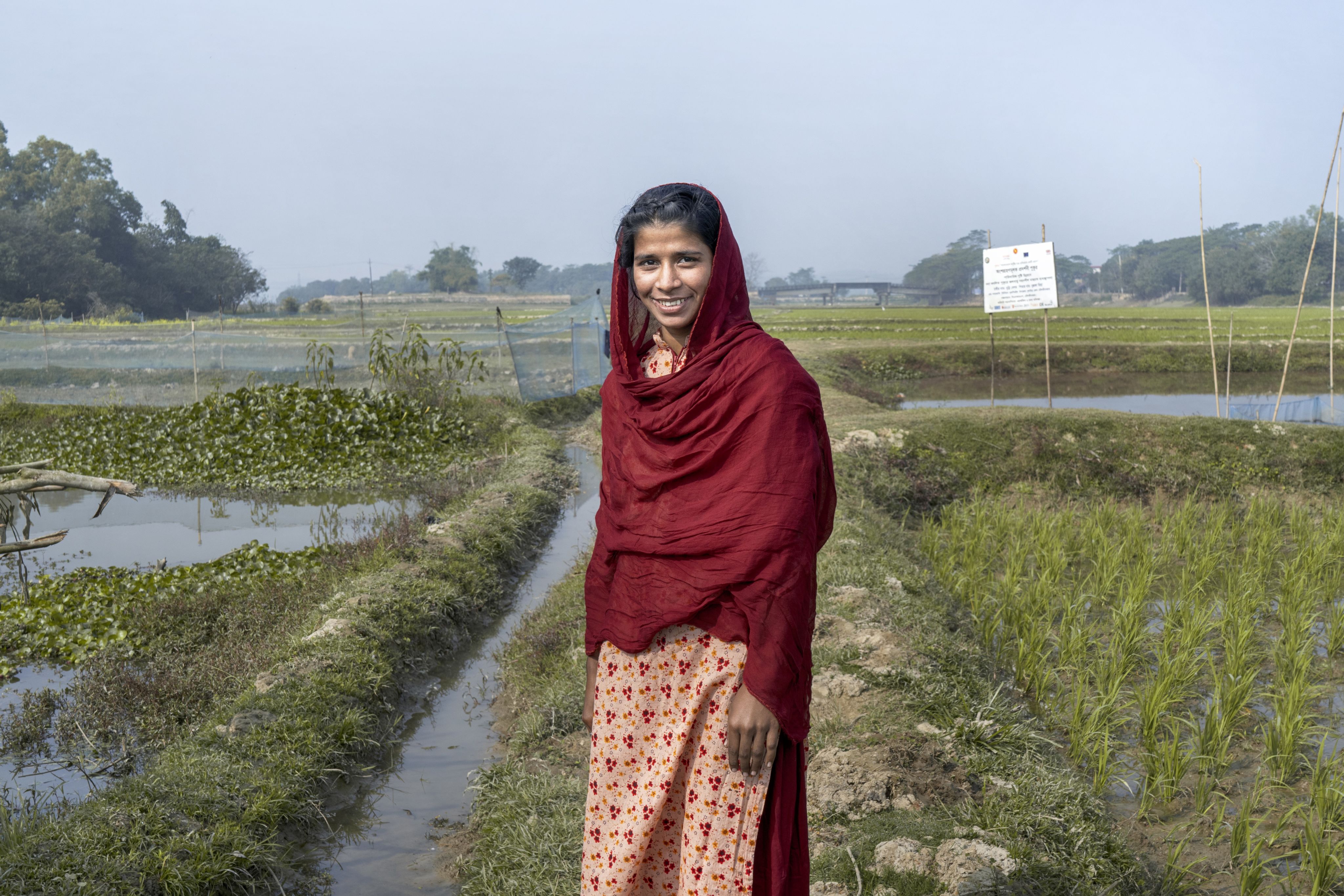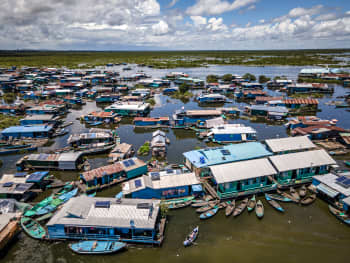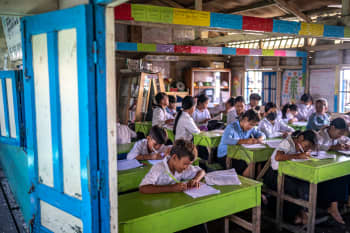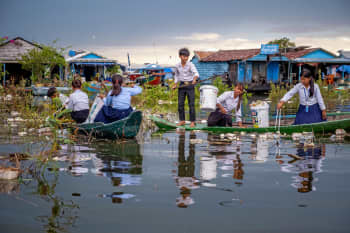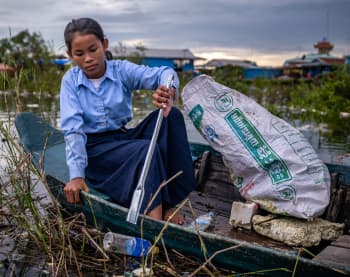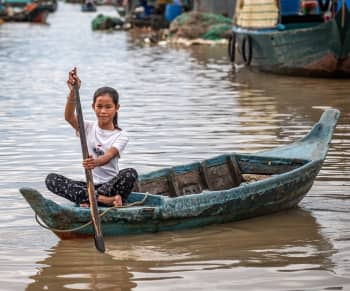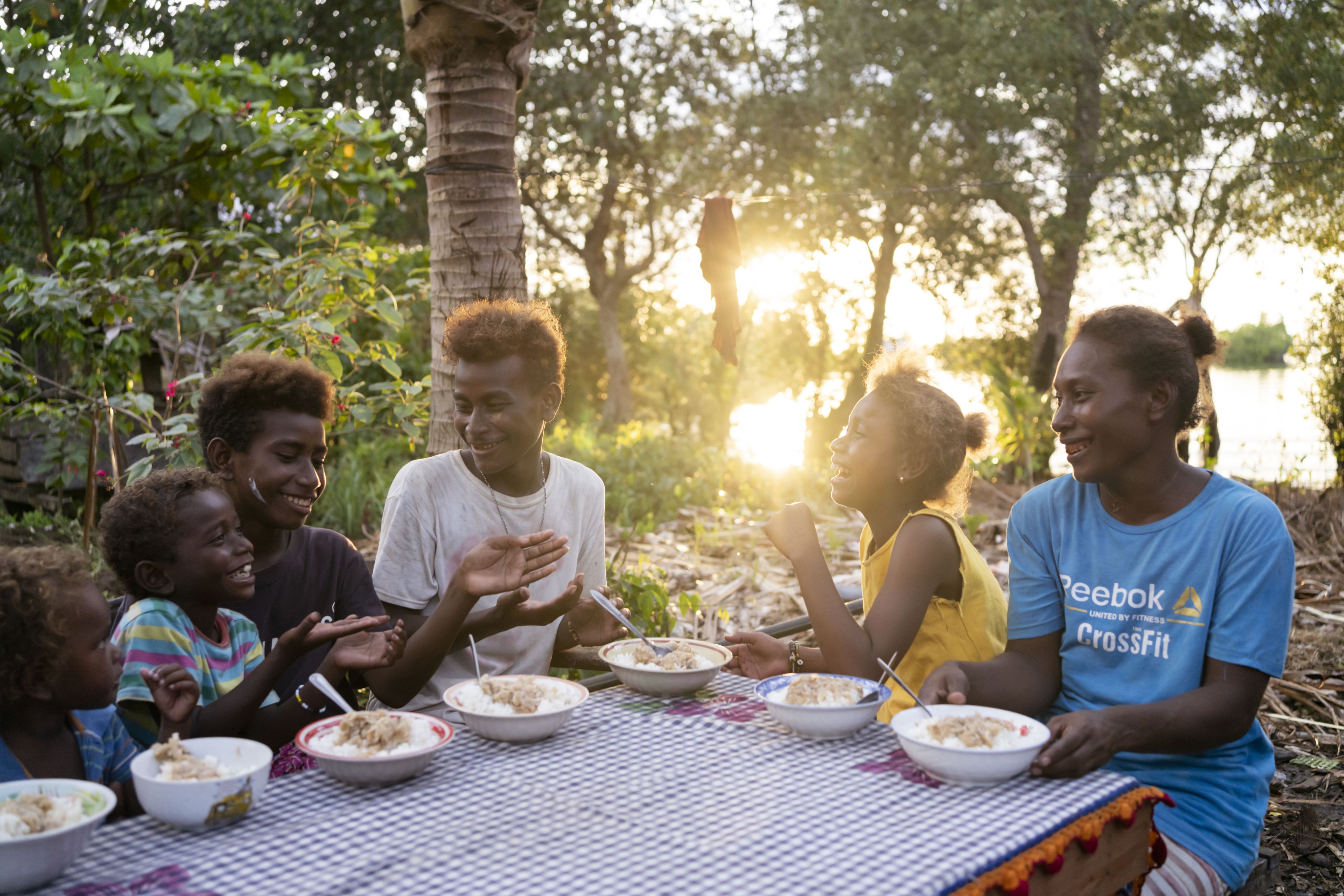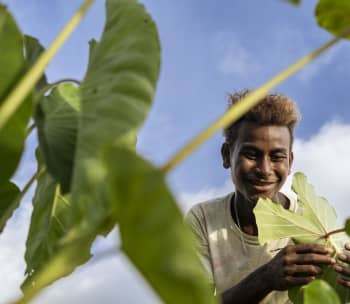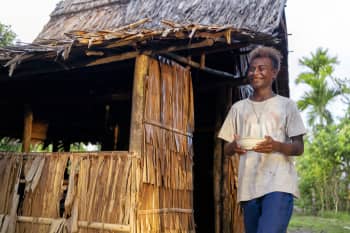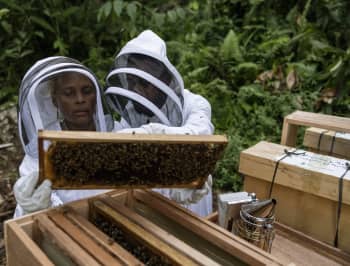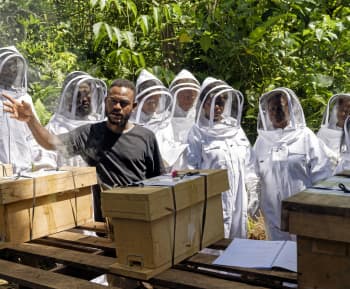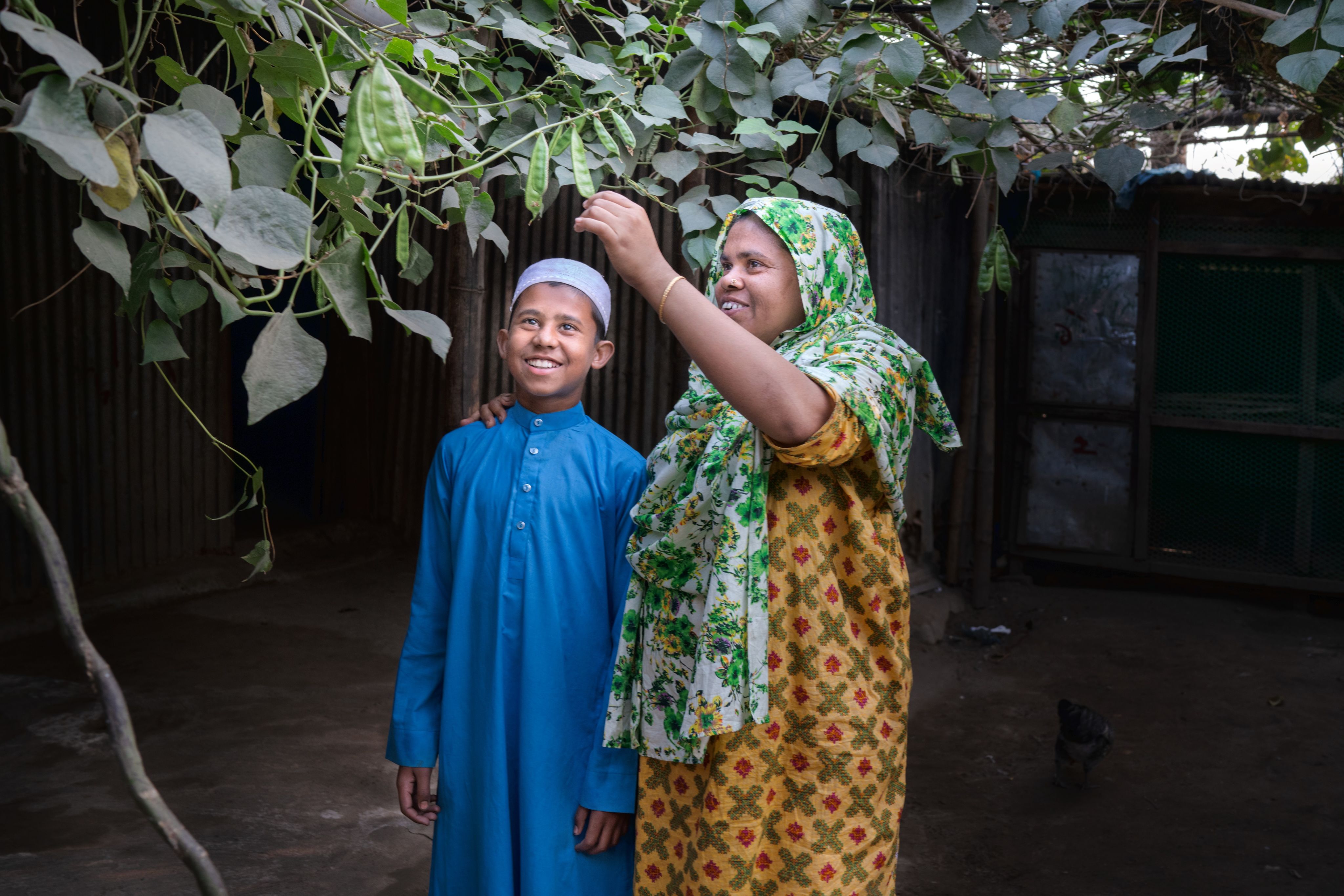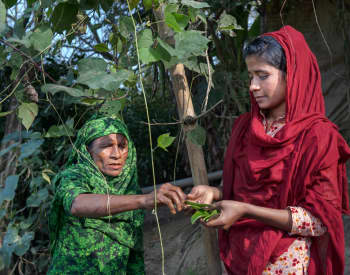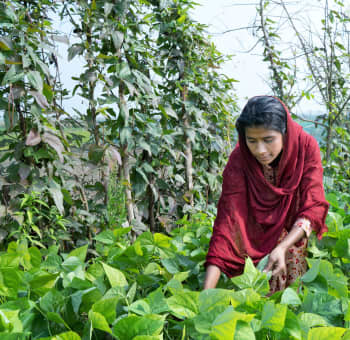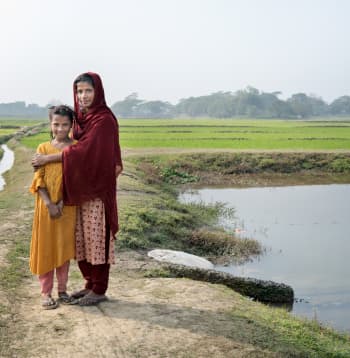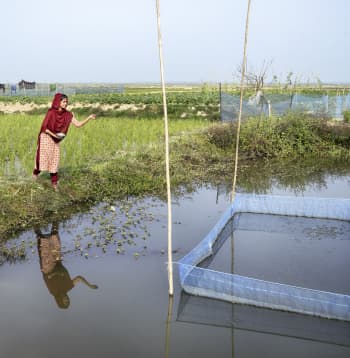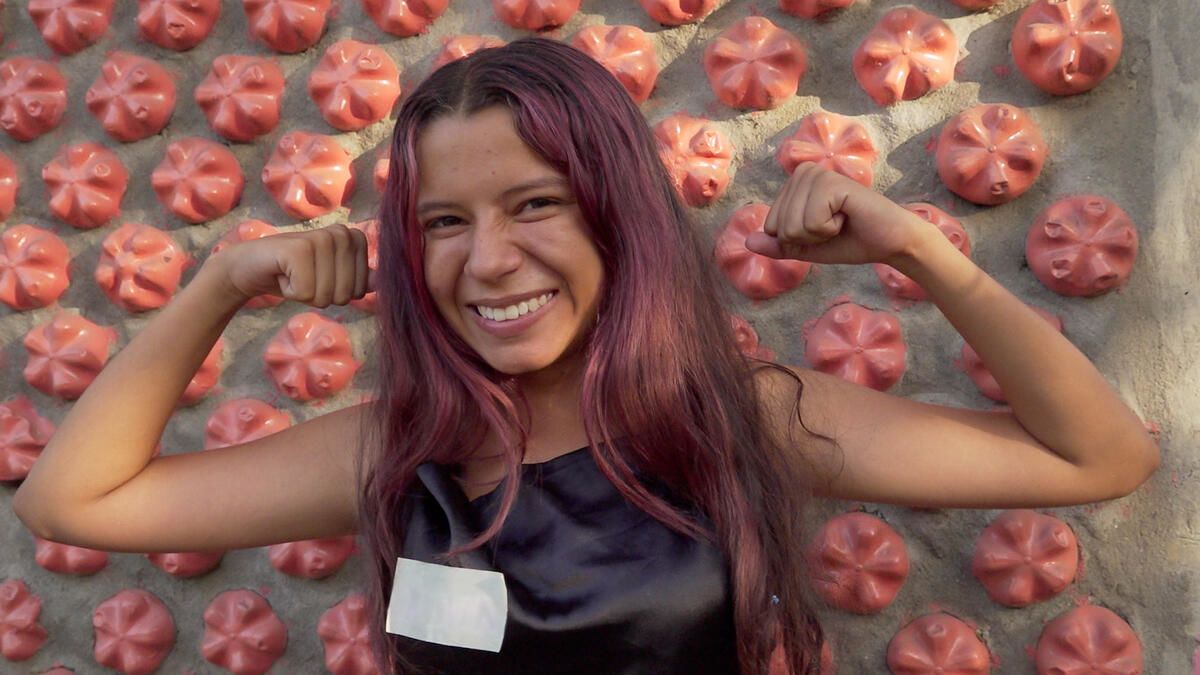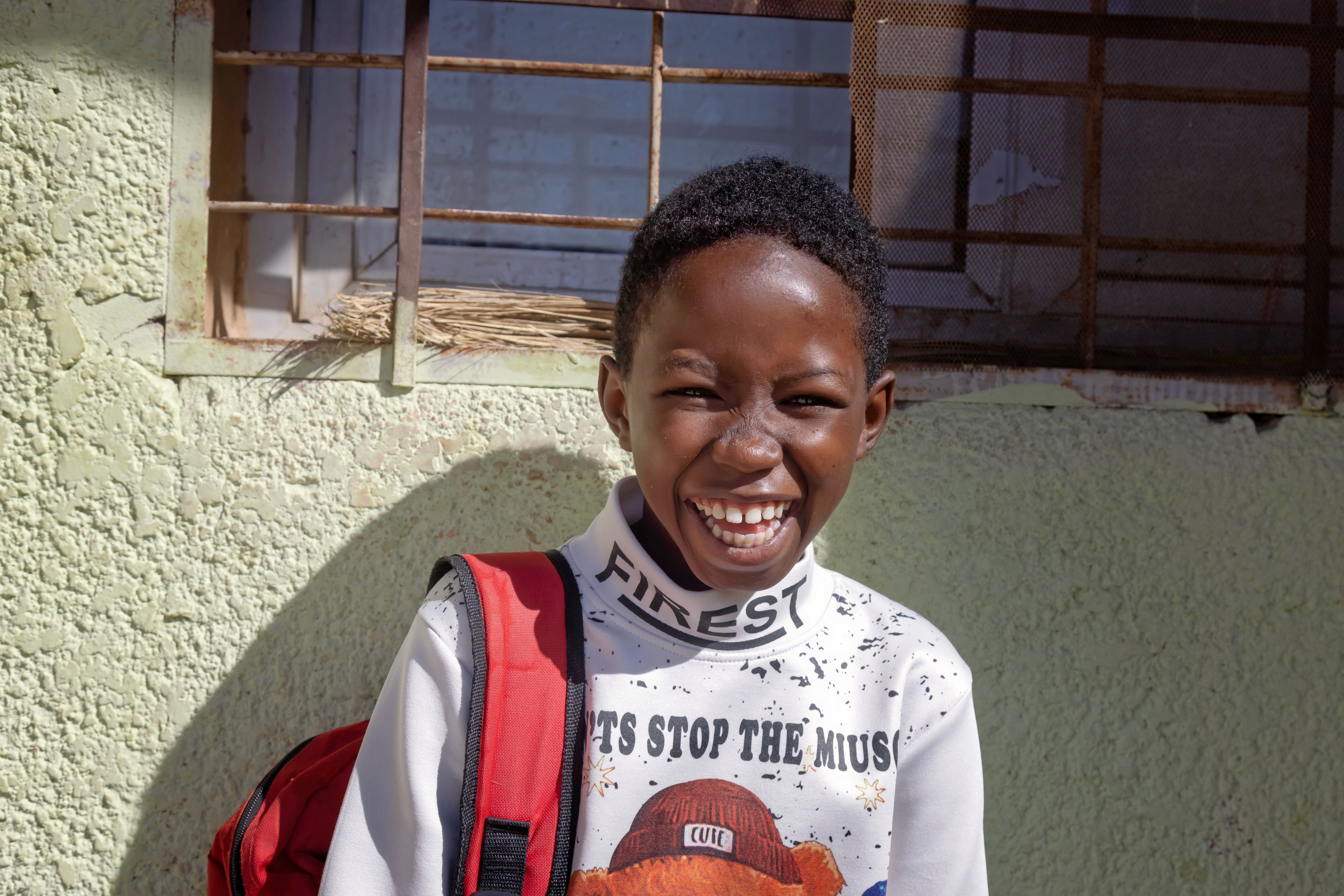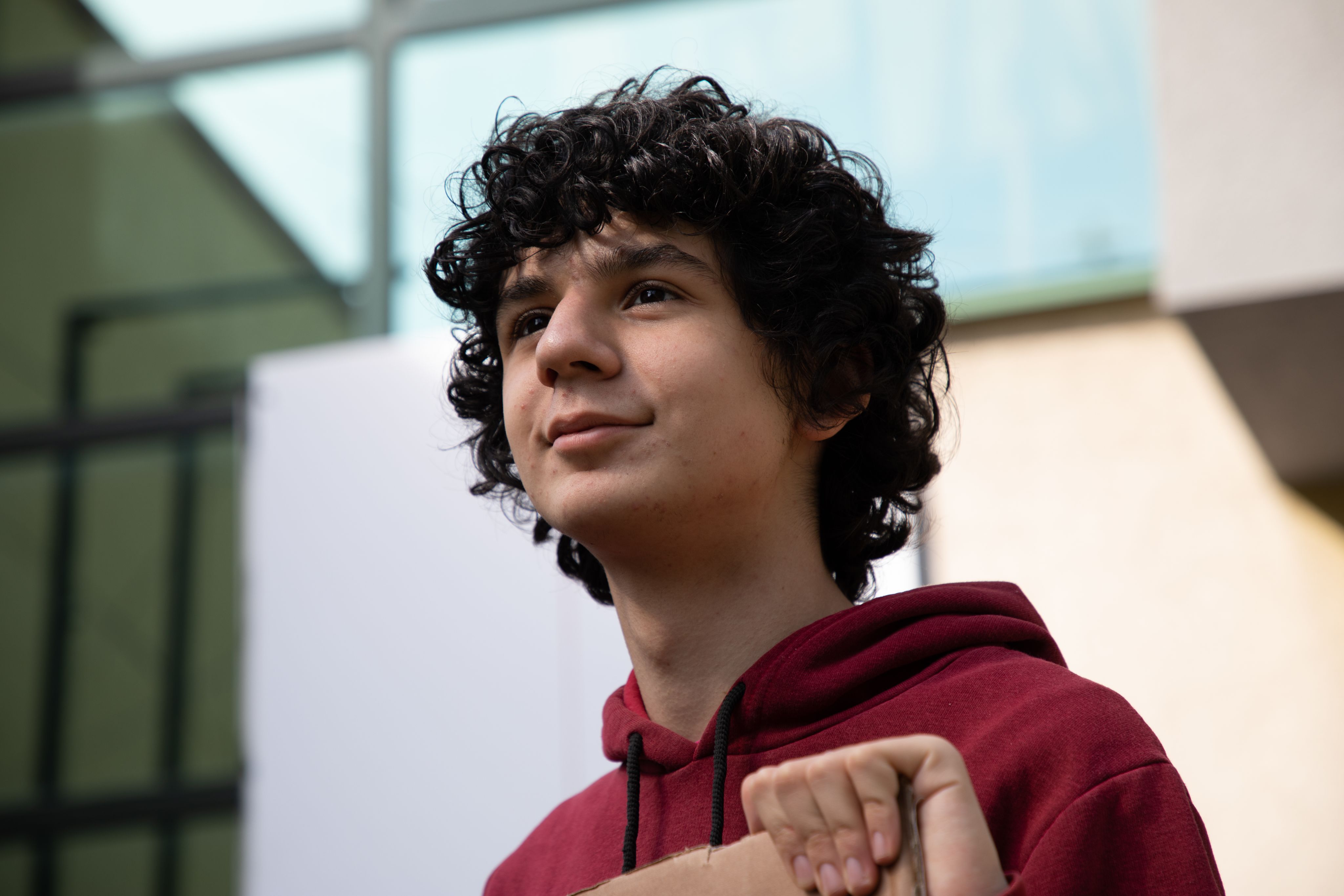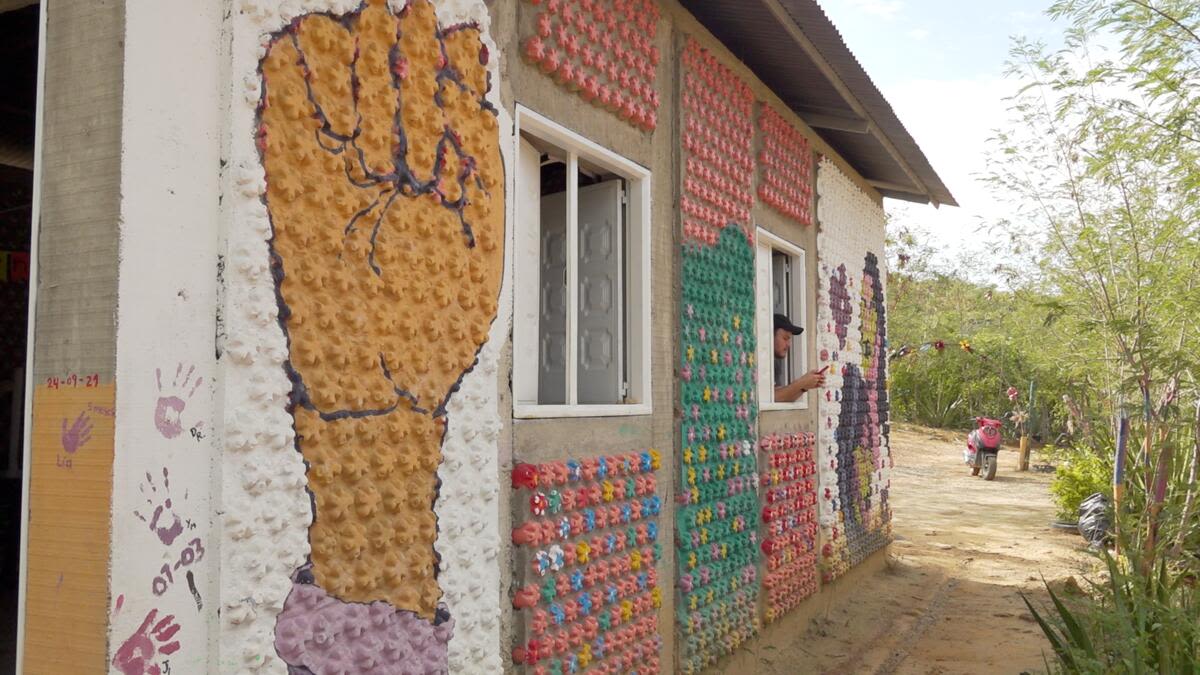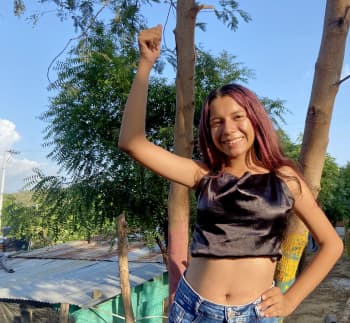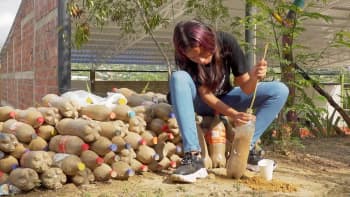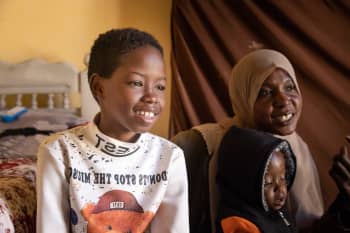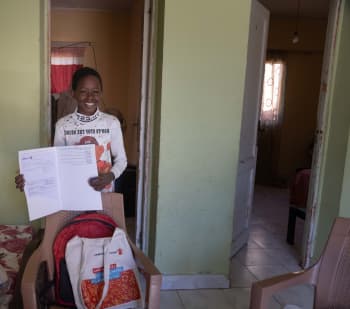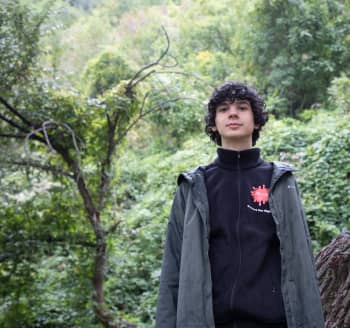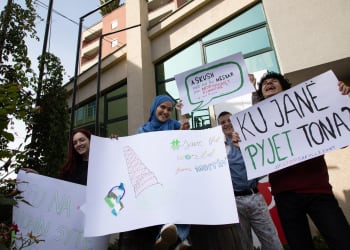Protecting children's futures from the climate crisis
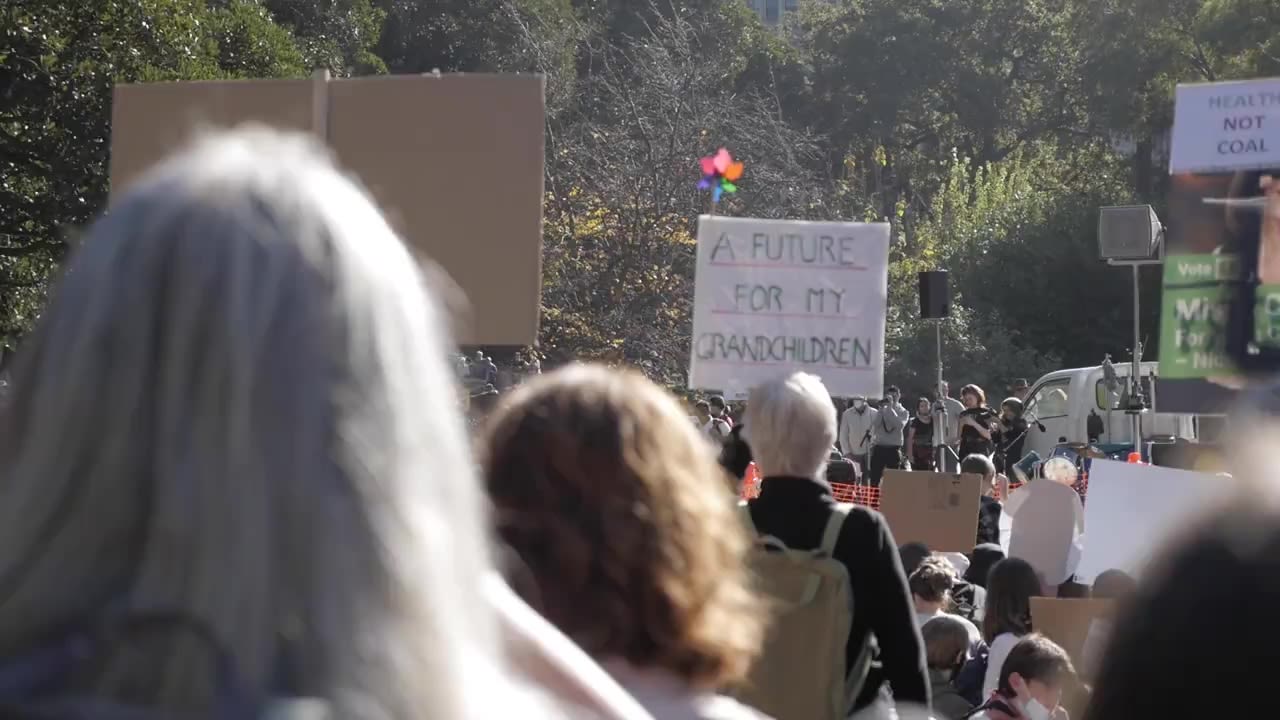
At Save the Children, we are putting children at the heart of climate action.
Keep scrolling to discover what we're doing to increase the climate resilience of communities and to raise the voices of child climate campaigners across the world.
Building climate-resilient communities
We are rapidly responding to climate-related crises and helping to build resilience across the world.
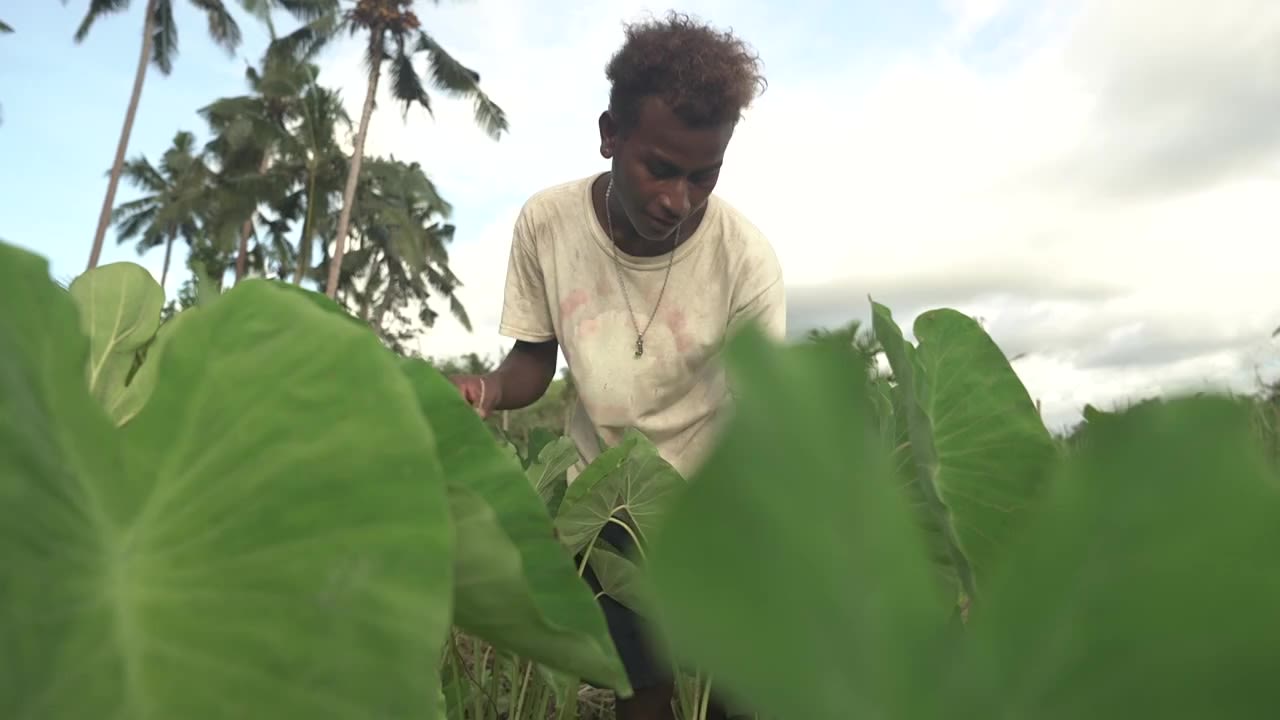
Ratana, 12,
Cambodia
I have learned about pollution, deforestation, and garbage. I’ve learned how to clean the environment and collect junk in the lake. I do not like trash because it ruins the environment and pollutes the water.
Junior, 16,
Solomon Islands
This training taught me things. We learned the use of a nursery, how to plant beans, how to plant taro, cabbage. Our trainers tell us this is to help us have food. When I heard this, I became very interested.
Munni, 18,
Bangladesh
Many people saw that Suchana gave me fish. And how I personally feed them. Many people come to see the fish. It makes lots of people want to start fish farming. That feels nice.
GREEN PROJECT - CAMBODIA
Cambodia’s Tonle Sap is the largest freshwater lake in Southeast Asia and home to more than 1 million people.
However, higher temperatures, drought, pollution, overfishing and environmental damage, have led to a dramatic fall in the fish stocks.
Also the lack of clean water and waste facilities are damaging the environment and hampering children's health.
Save the Children’s GREEN project, established in 2021, is aiming to help more than 40,000 children and adults around Tonle Sap Lake, Cambodia, diversify their income and start "green livelihoods".
We’re developing innovative climate-smart, health, sanitation and hygiene technologies, working in collaboration with local social enterprises. Two projects nearing completion are:
- A household water-purification system made from clay
- A waste-management system called the ‘floating pot’
We’re also collaborating with government ministries, local authorities, schools and teachers to repair schools that have been damaged by storms and install solar-powered fans to keep children cool during the dry season, which has become hotter due to climate change.
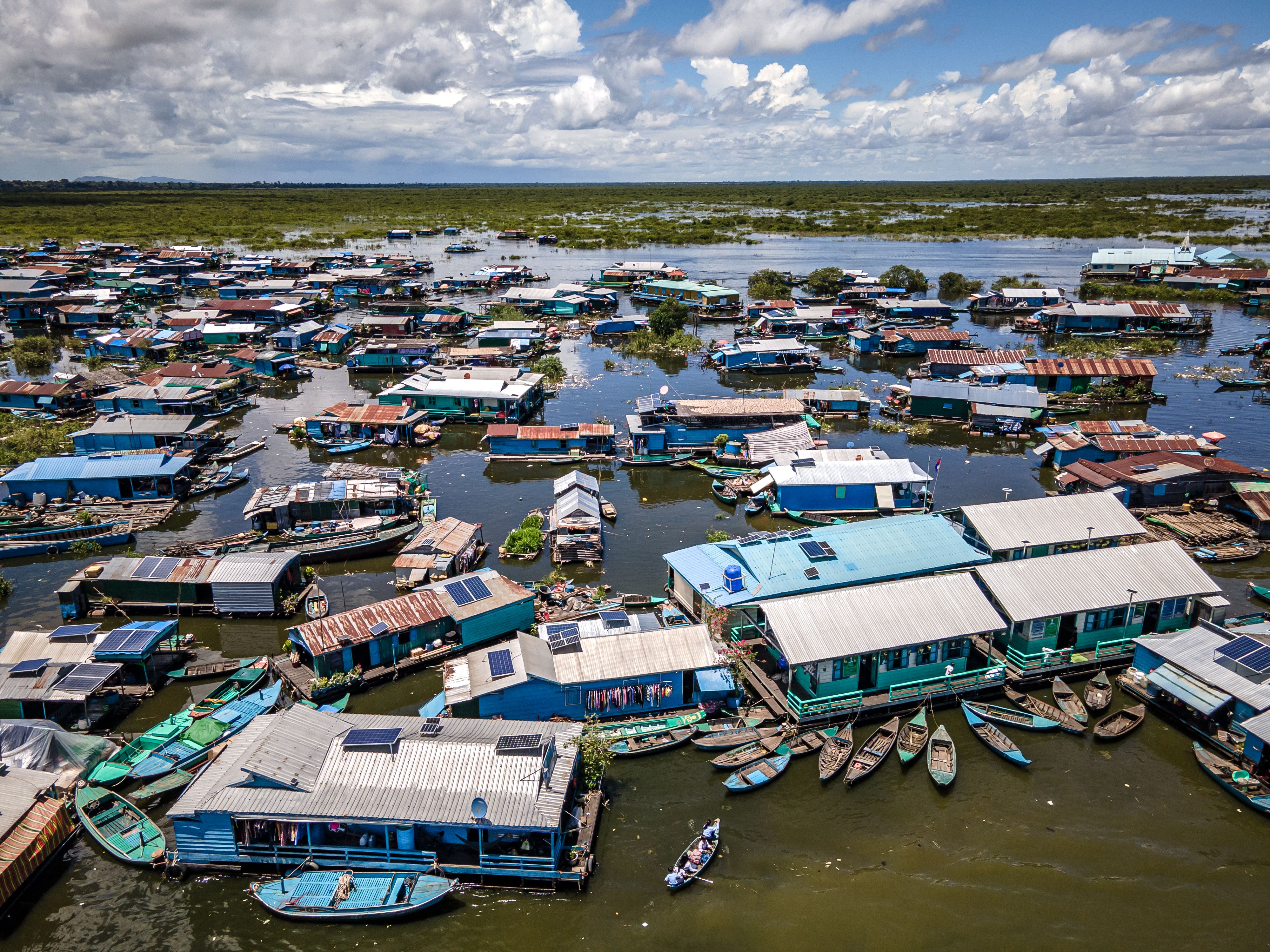
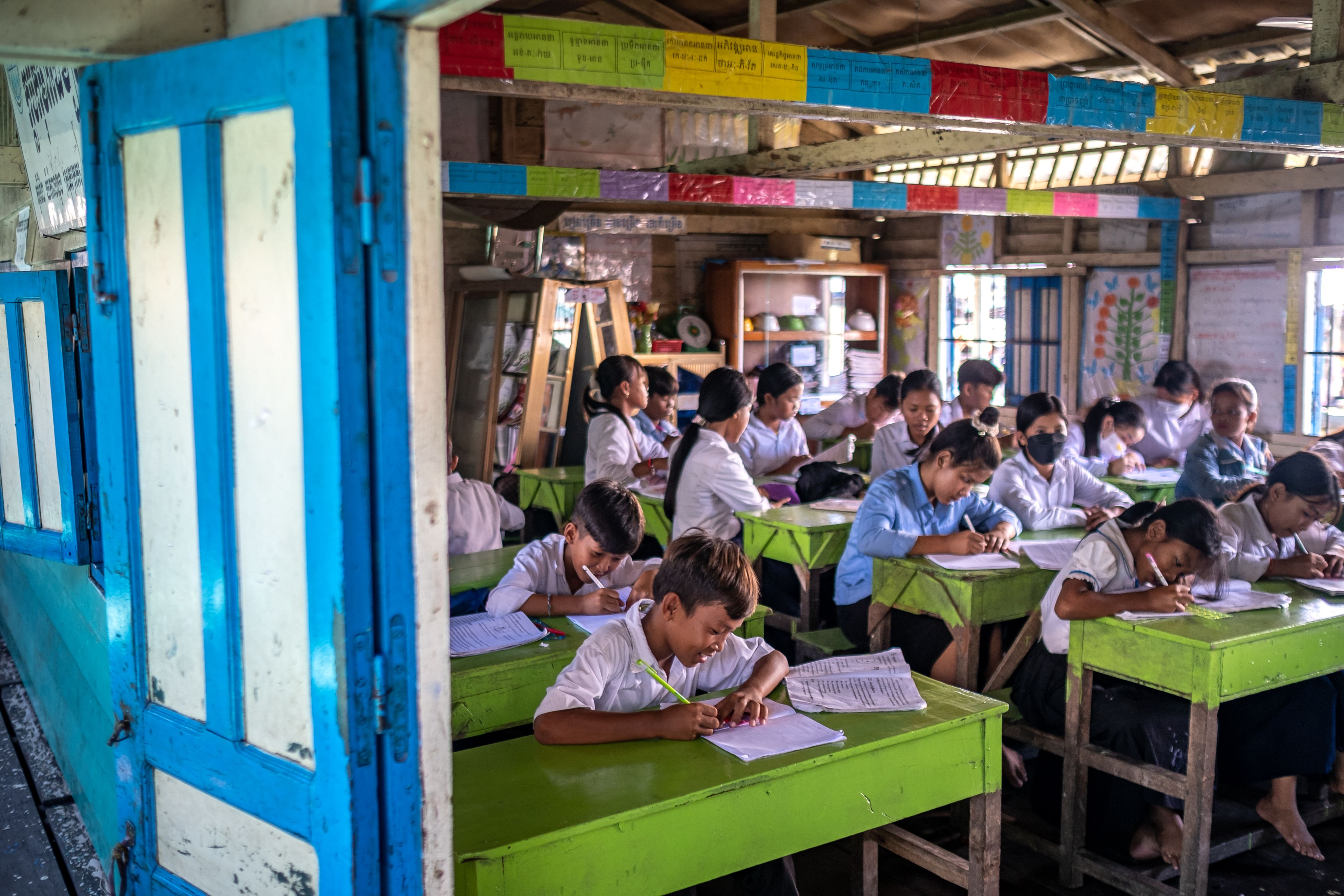
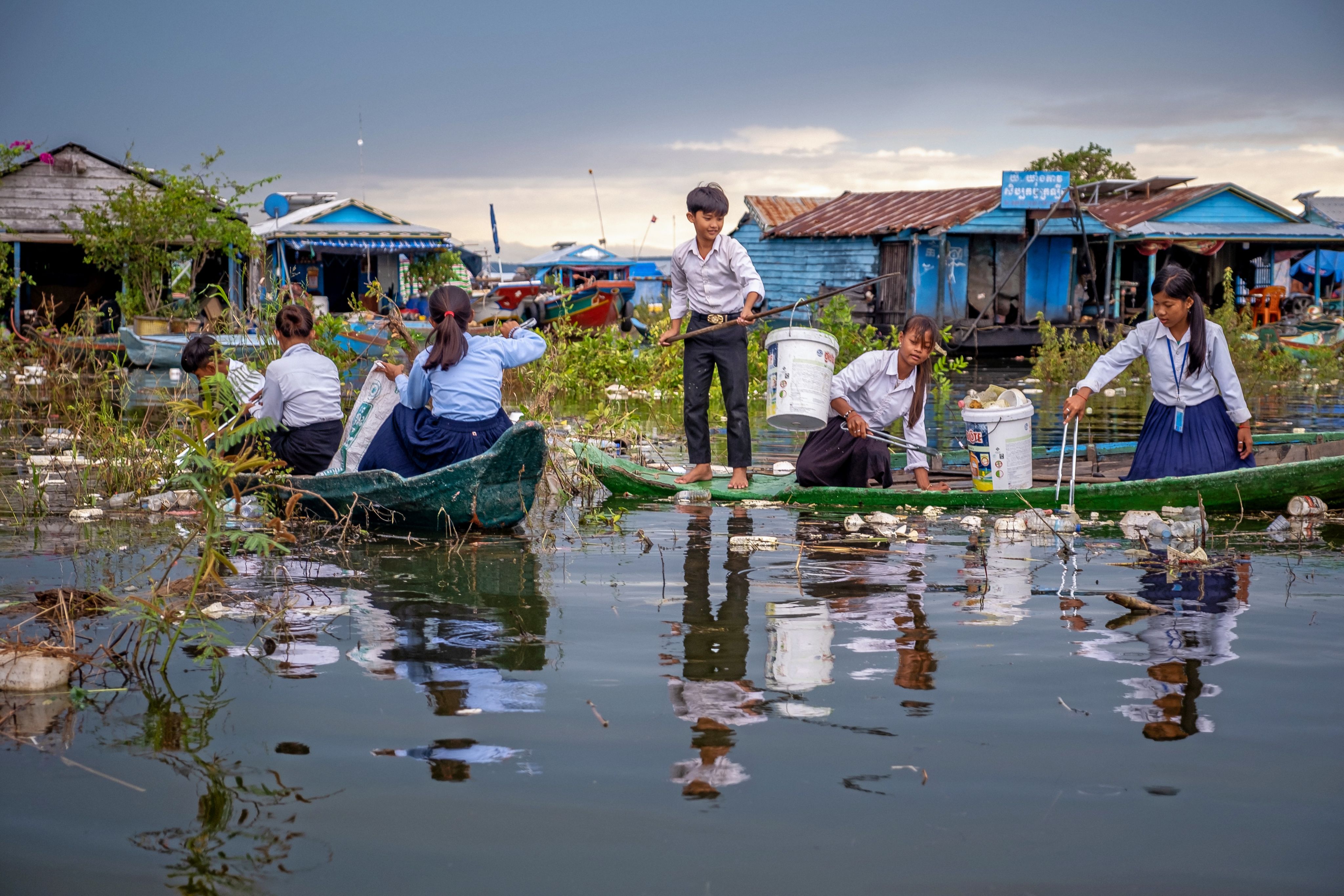
Ratana's story
Every morning, 12-year-old Ratana sets off from her home to go to a floating school supported by Save the Children – but she’s got a vital job to do before she gets there.
As she rows she picks up friends along the way – and together they work to clear the rubbish that litters the lake.
When we row the boat to school we pick up the trash, and put it in our boat.
She and her friends care passionately about cleaning up the lake because of the eco lessons we’ve helped introduce to the school’s curriculum.
I have learned about pollution, deforestation, and garbage. I’ve learned how to clean the environment.
She is also spreading the word to her community about climate change and protecting the environment.
The elderly and adults should listen to children because we are now aware of the environment.
It is children like Ratana and her friends that are this fishing community’s best hope of saving their lake and livelihood. It is her generation that is leading the fightback against climate change across the world.
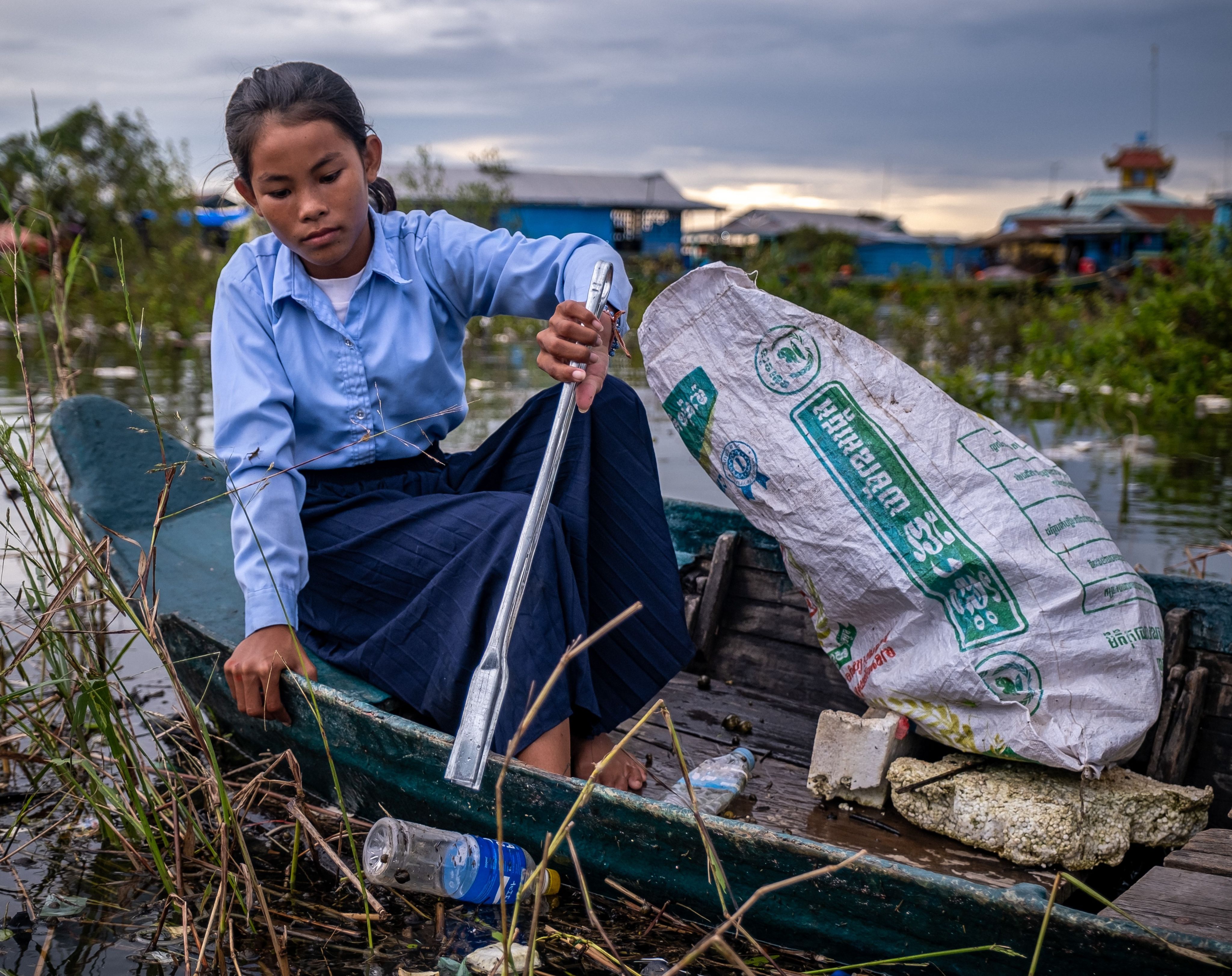
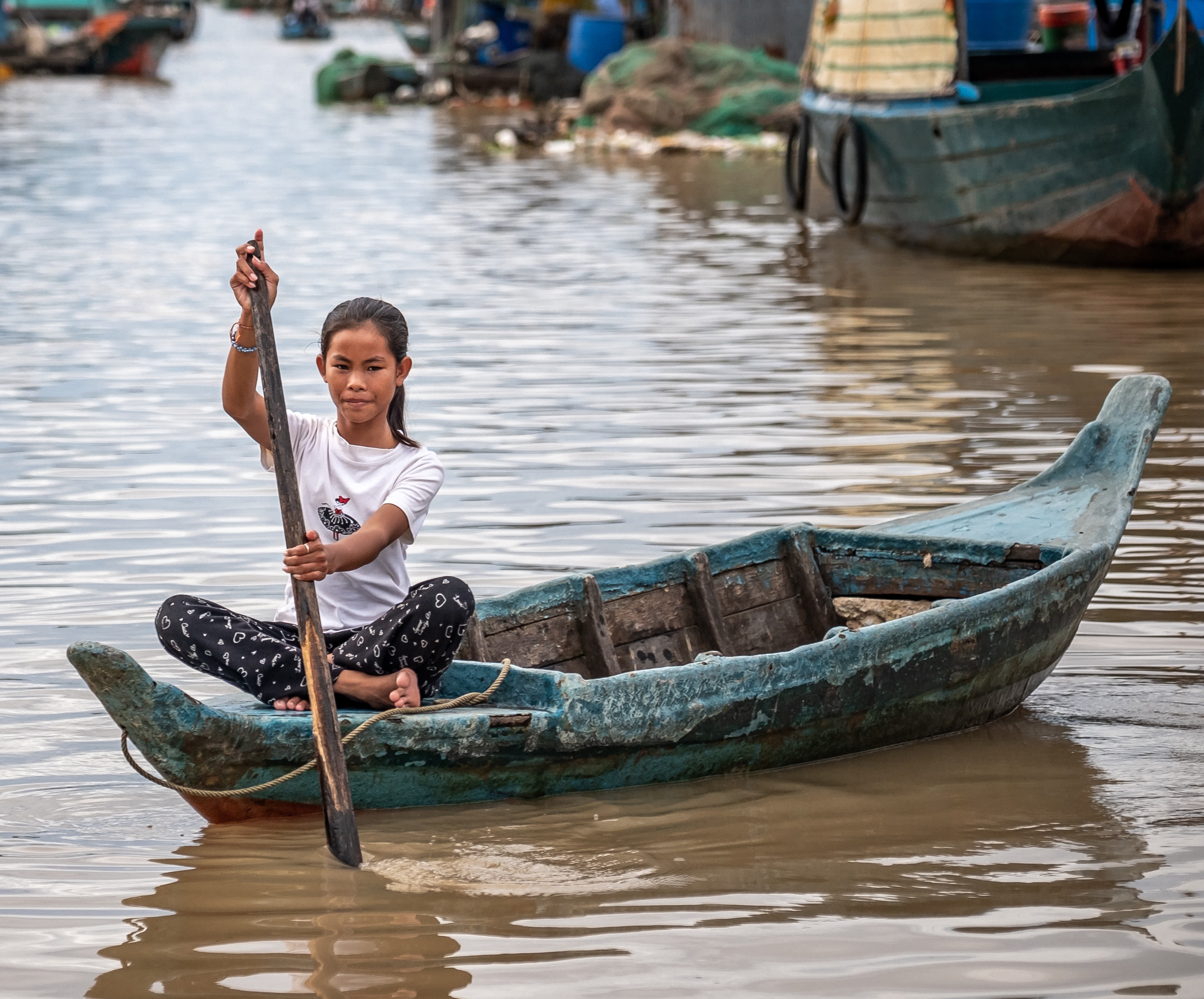
BEEKEEPING & CLIMATE-RESILIENT FARMING - SOLOMON ISLANDS
Junior's story
Junior's community in the Solomon Islands is one of the most vulnerable in the world to climate change.
The weather has changed. The rain can last for up to a week. Winds can get very violent. And the sea level rises even more.
Rising sea levels, combined with increasingly ferocious storms, have flattened homes and killed the crops that so many families here rely on.
When the rising sea level spoils or destroys our gardens, I usually feel sad and sometimes I feel sick because I have nothing to eat.
It’s not an exaggeration to say Junior’s generation is inheriting a battle for existence.
Save the Children is helping young people in the Solomon Islands adapt for challenging times ahead by running training sessions on climate-resilient farming, soil management, and which crops will grow best in extreme weather.
I am happy today during the training. I learnt some things like mixing soil, how to make compost, how to plant plants.
Junior, 16, and his family eating dinner together outside their home in a community affected by rising sea levels in Malaita Province, the Solomon Islands. Conor Ashleigh / Save the Children
Junior, 16, and his family eating dinner together outside their home in a community affected by rising sea levels in Malaita Province, the Solomon Islands. Conor Ashleigh / Save the Children
Save the Children is not only helping train communities on more climate-resilient farming techniques, it has also introduced Solomon Islanders to the power of beekeeping!
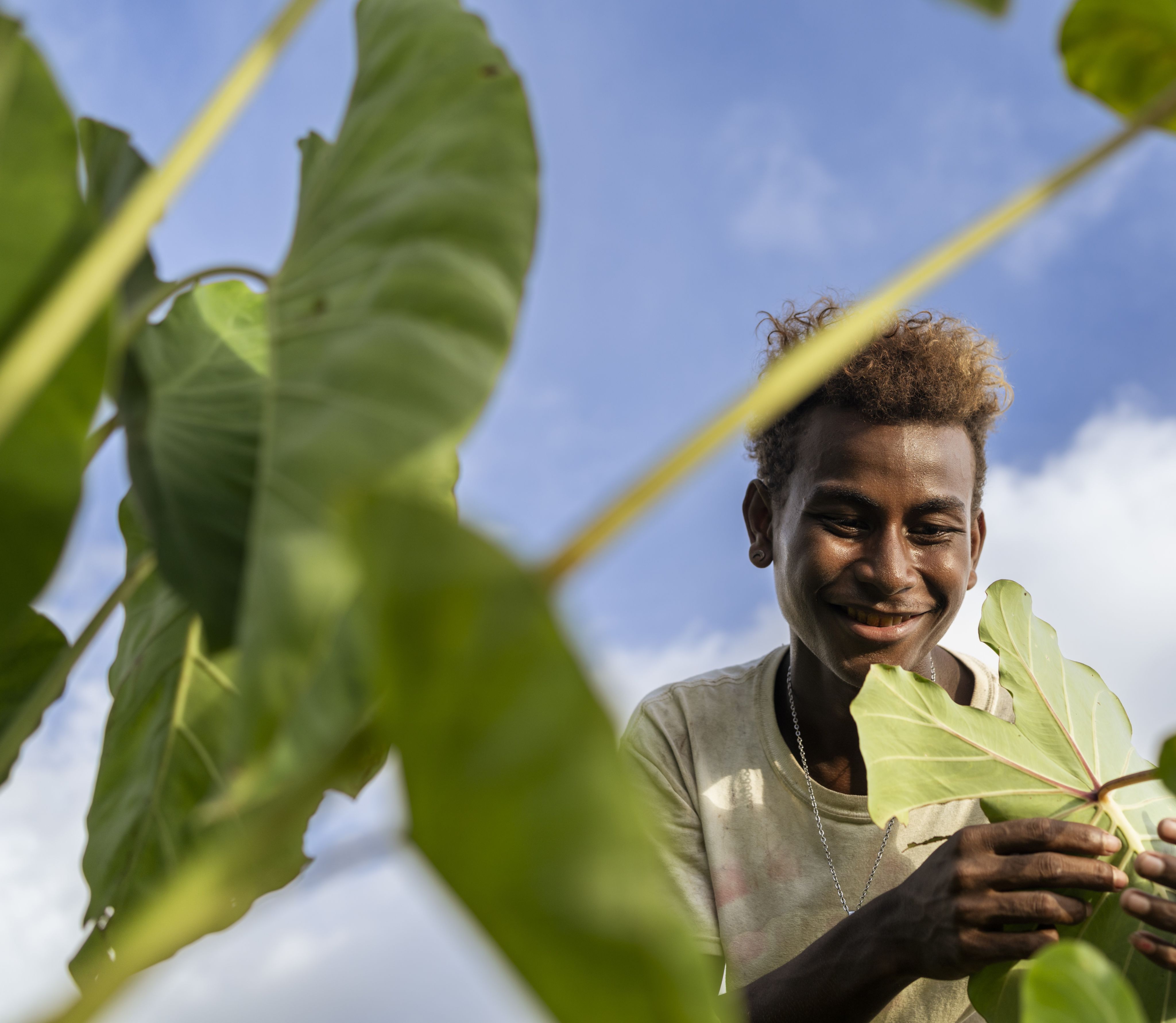
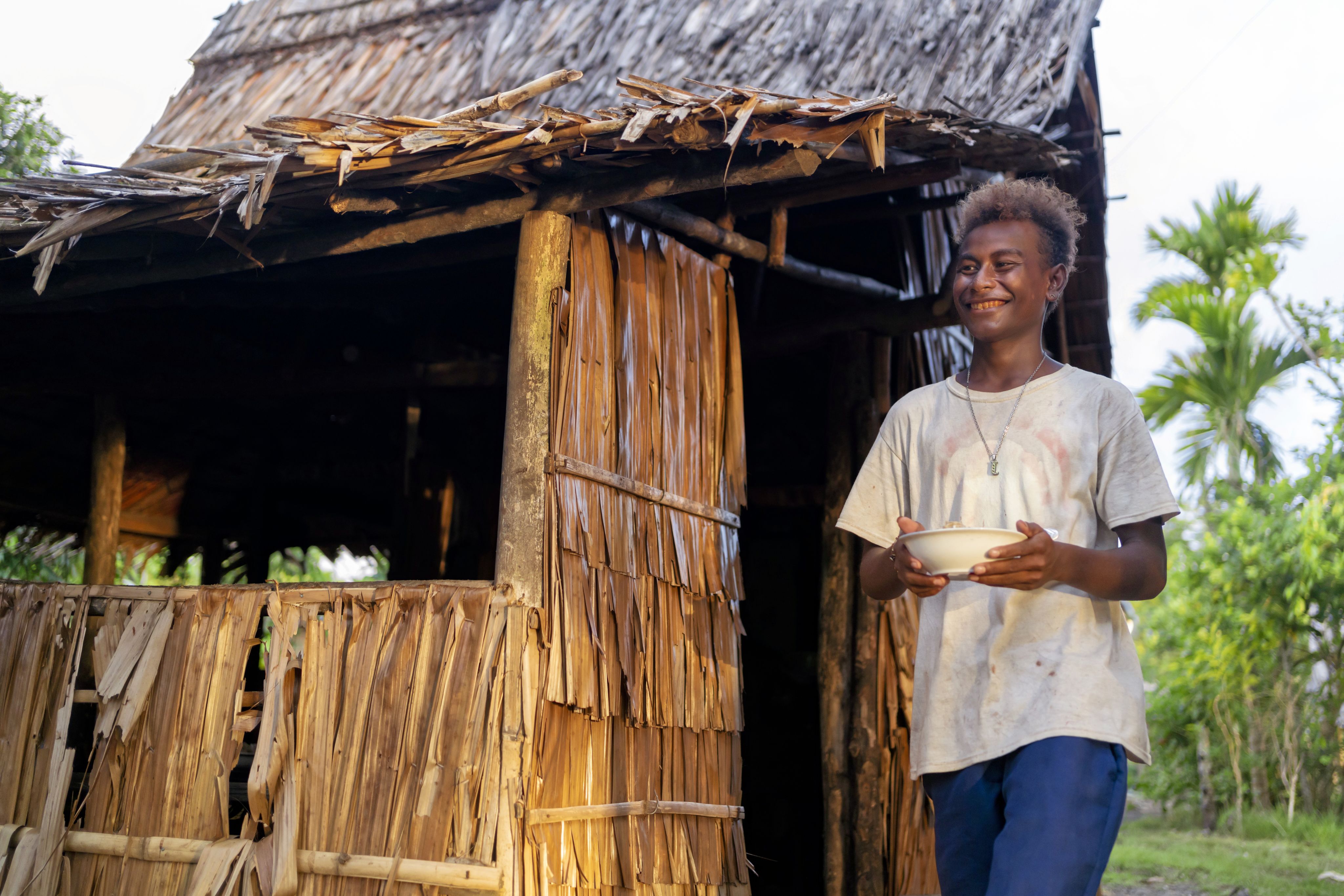
In collaboration with local NGO Mai Maaasina Green Belt, our Nature Based Solutions project aims to restore protective ecosystems like mangroves, and help families diversify their income away from farming.
That’s why Alison, a mother of six from Junior's community, is part of a group of women and young people training to keep bees.
But why bees? Well, bees love mangroves so they help pollinate them, and in turn, help them grow.
The mangroves then protect the islands – along with wildlife and food sources like fish and crabs - from storms and high tides. They even store carbon deposits that don’t make their way into the atmosphere, effectively slowing climate change globally.
It is a win-win for everyone, from the bees to local islanders and even the planet!
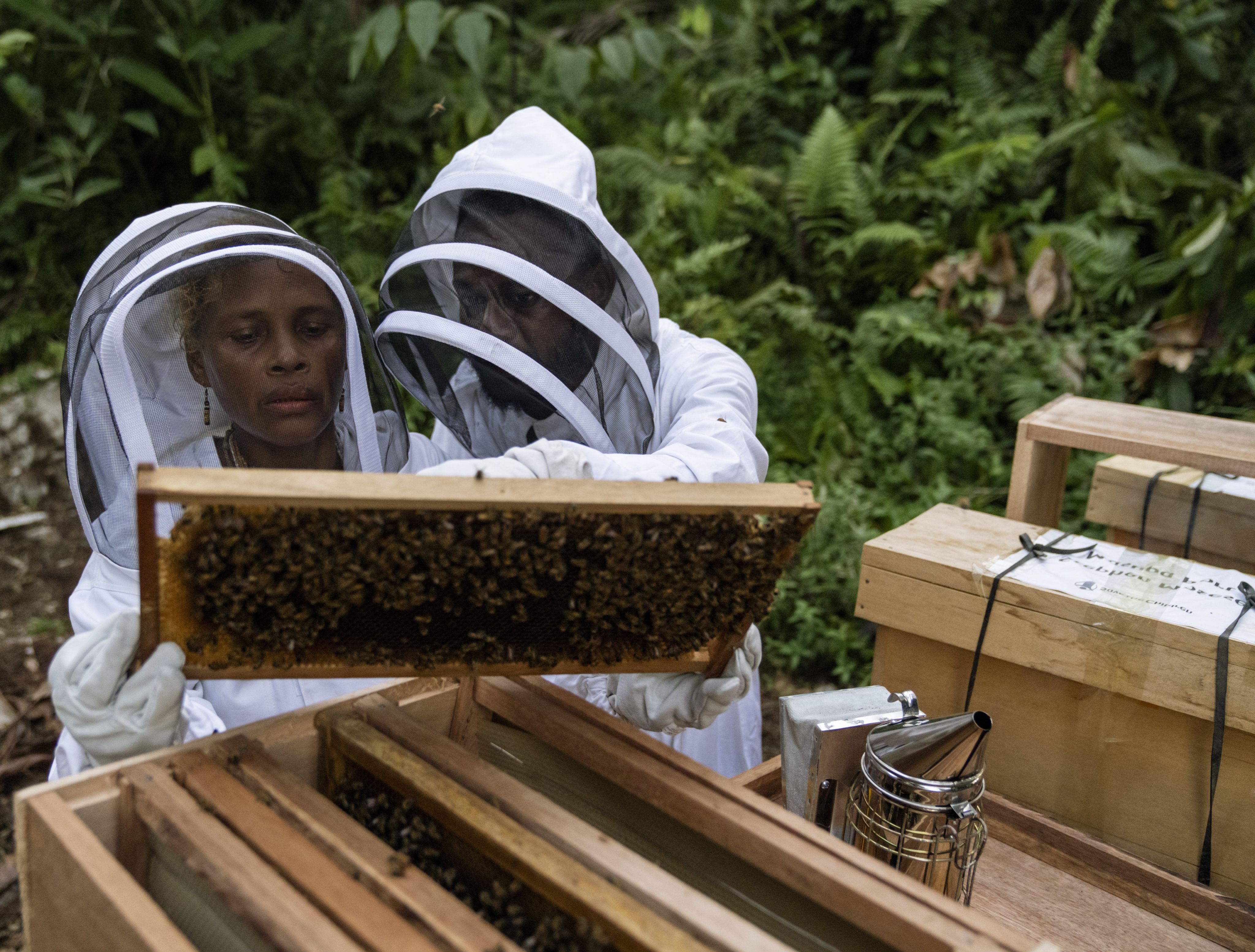
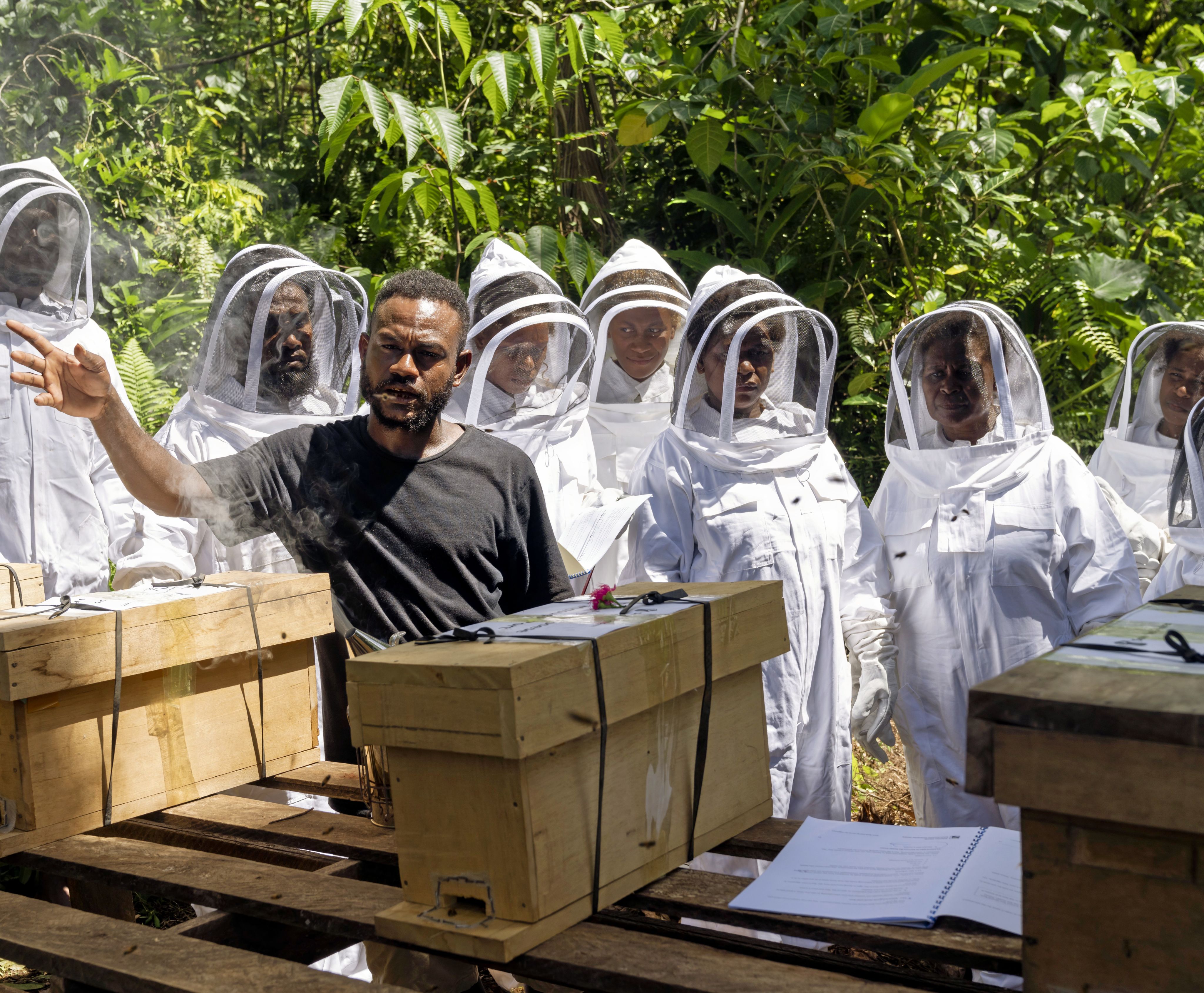
CLIMATE-SMART FARMING - BANGLADESH
Suchana (‘New Beginnings’ in Bangla) is a 6-year programme led by Save the Children together with national and international partners that ran from 2016-2023 to address chronic undernutrition among women and children in Sylhet and Moulvibazar, Bangladesh.
Families in this part of Bangladesh are especially vulnerable to climate change as they live in a flood-prone area with seasonal floods.
Thanks to Suchana, many women and girls now have sustainable sources of home-grown food and income, thousands of children have had a healthier start in life, and thousands of families have an improved diet and have adopted climate-resilient farming techniques!
Junaed, 10, smiles as his mother shows him one of the plants in her model farm at home in Sylhet, Bangladesh. Fabeha Monir/Save the Children
Junaed, 10, smiles as his mother shows him one of the plants in her model farm at home in Sylhet, Bangladesh. Fabeha Monir/Save the Children
Save the Children trained and equipped farmers to protect their crops and fish against the floods with tower gardens, sack gardens and vertical gardens and has introduced "hapa" for fish farming.
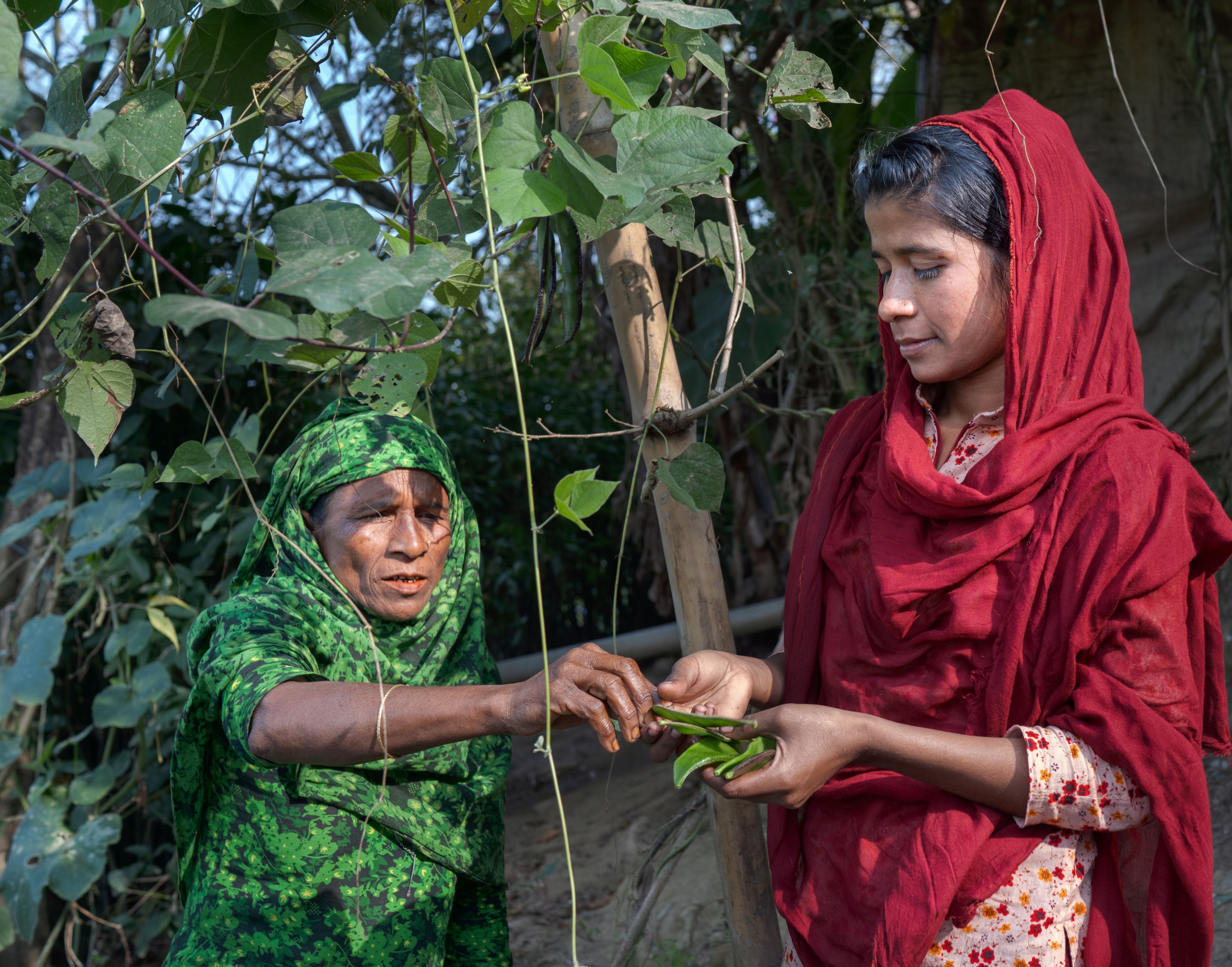
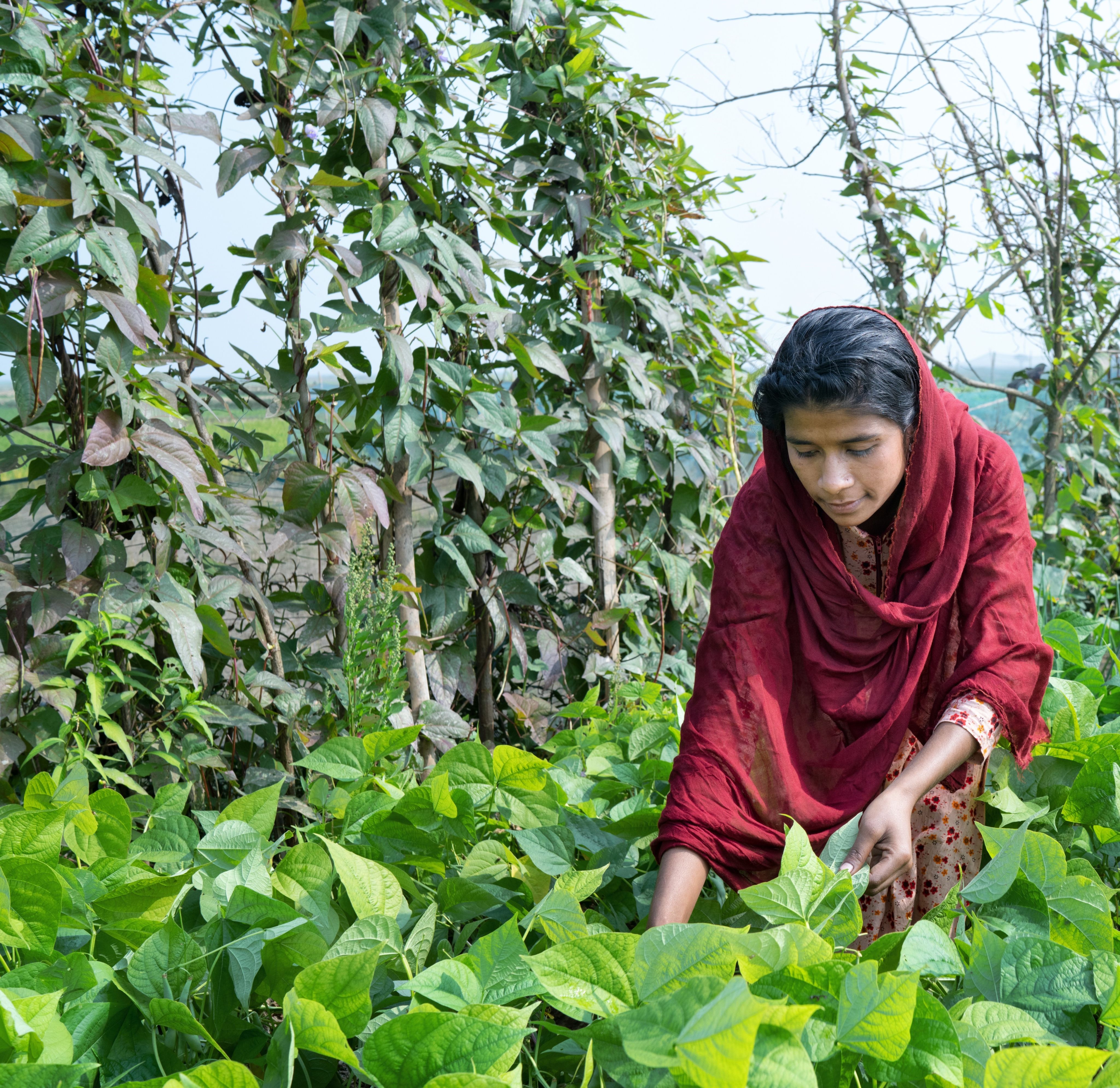
Munni's story
Munni, 18, is breaking social barriers in her community - she has become the first girl to take on fish farming!
Munni and her family felt the impact of climate change first-hand when their home was destroyed during the seasonal floods.
Half of our house was sunk in the mud. And my father repaired it himself. We’ve [been] through a lot here. It’s been painful.
Munni has taken part in training we’ve run in her community, as part of the Suchana Programme, which is supporting communities to increase sustainable food production, treat malnutrition, and build climate resilient practices to protect communities against flooding.
Munni was shown how to farm fish using climate-resilient practices so that her livelihoods are not destroyed by the floods.
Everyone praises that I am doing fish farming.
She has also been teaching other people how to fish farm to help more people in her community become more resilient to natural disasters.
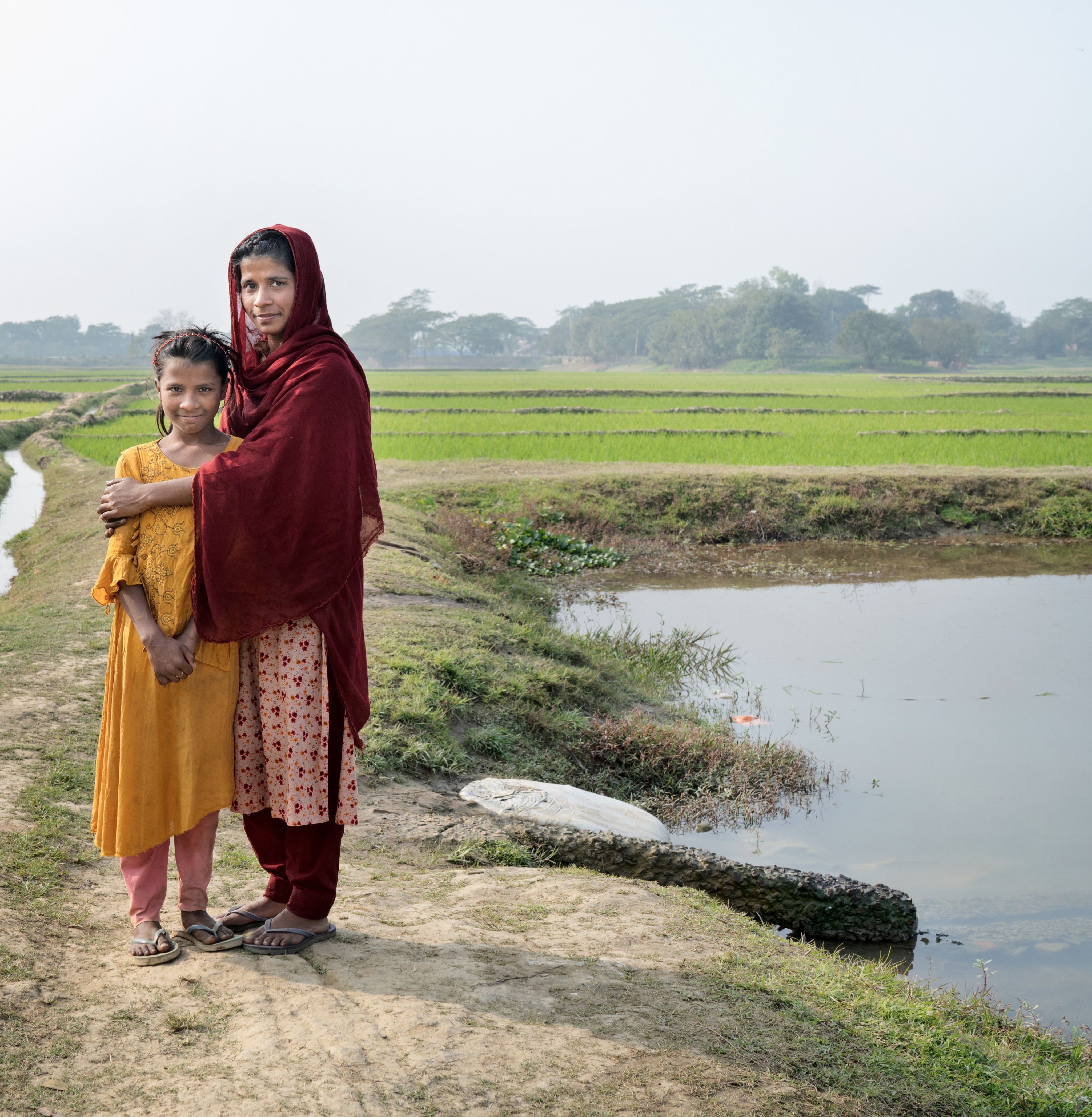
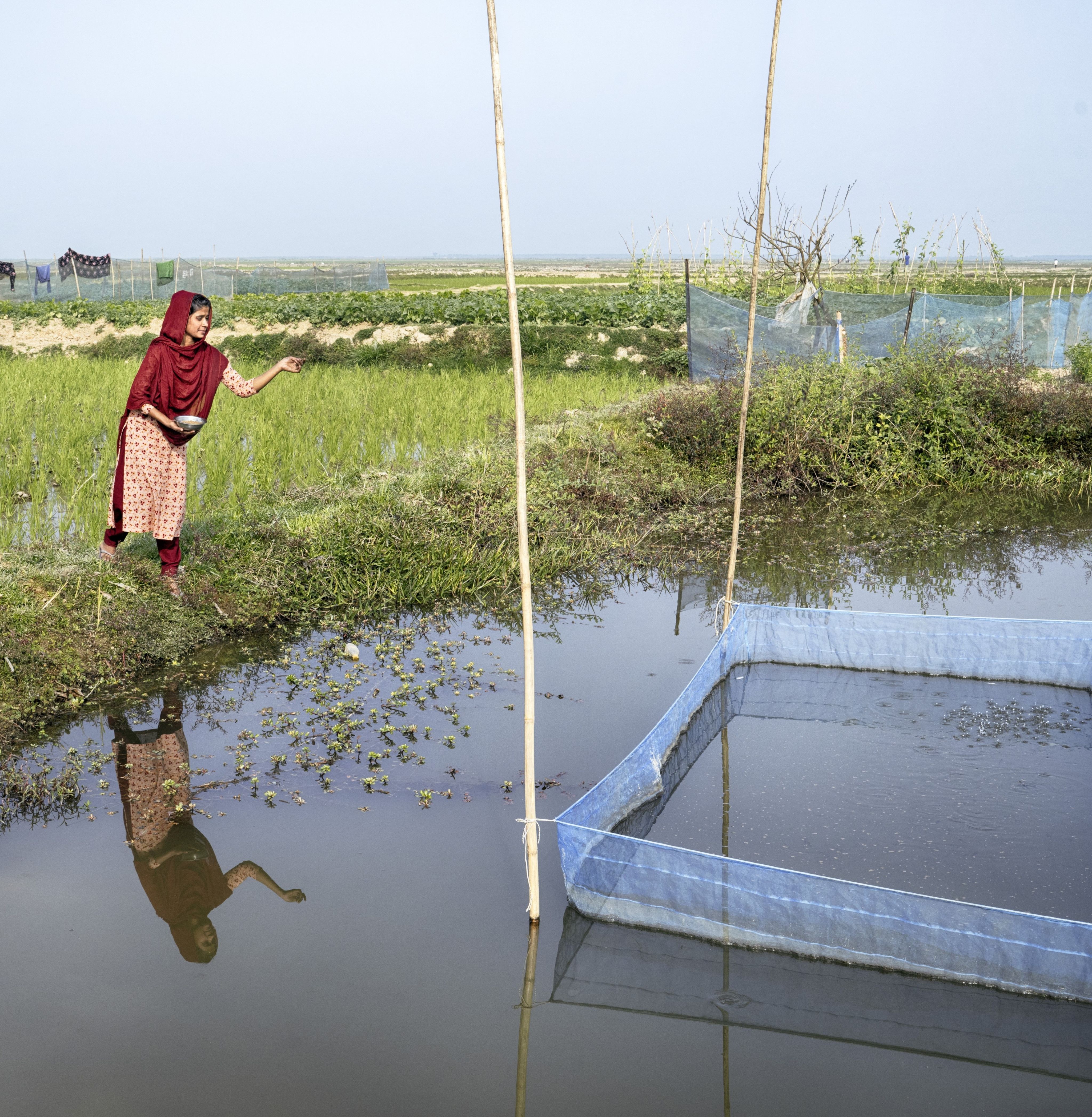
Amplifying children's voices
Children everywhere are speaking up and holding leaders accountable. They are calling on decision-makers to tackle the climate and inequality crisis by building fairer, greener societies.
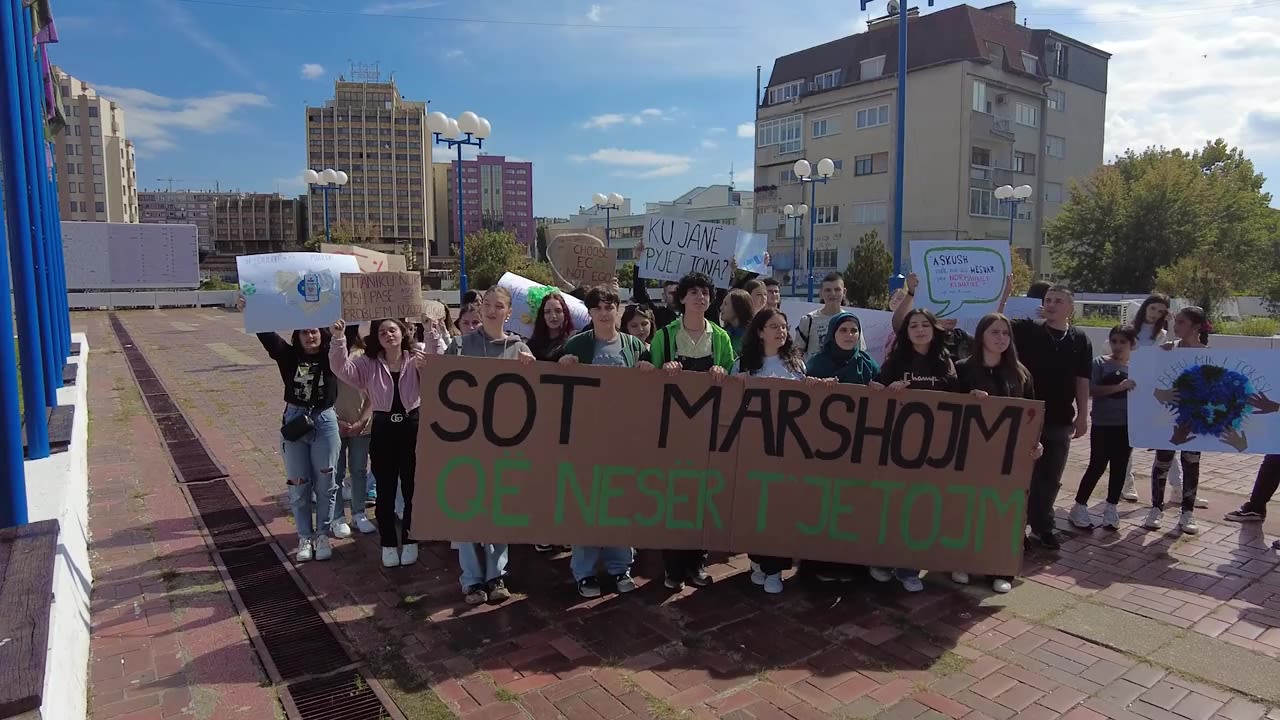
Children have had their lives devastated crisis after crisis – and it’s not their fault.Oriana*, Assad and Olt are speaking up and leading the way towards a better world and it’s time for leaders to listen and follow their lead.
Oriana*, 15,
Colombia
At school, at home, I recycle. My mum makes bags out of bags - she knits them. At school, we recycle plastic bottles and cans."
Asaad, 13,
Egypt/Sudan
There were things that I had to tell the officials [at COP] because they have to find solutions so that children don't suffer.”
Olt, 16,
Prizren, Kosovo
If I could tell world leaders something that they need to do [it] is take action now, literally now, because there is not a lot of time to take action."
ORIANA*
THE WASTE WARRIOR
When she was a baby, her family fled violence in Venezuela. Now Oriana* lives with her family in Colombia near the Venezuelan border.
As a passionate climate activist, Oriana* feels that people don’t look after the environment properly.
We should be more aware
and we shouldn’t drop litter because it pollutes and harms the environment and this is the cause of climate change. We
should look after it.
She has already seen the impact of climate change around her - heavy rainfall has caused rocks to fall from nearby cliffs and has even stopped children like herself from going to school.
One day there was a storm. It rained so heavily that the house where I lived collapsed.
To help protect the environment, Oriana* creates crafts out of things that people consider rubbish. For example, she fills bottles with sand so that they can be used as bricks.
A house called 'Chica Street' that Oriana*, 15, helped to build out of recycled plastic bottles in Norte de Santander, Colombia. Pascale Mariani / Save the Children
A house called 'Chica Street' that Oriana*, 15, helped to build out of recycled plastic bottles in Norte de Santander, Colombia. Pascale Mariani / Save the Children
Oriana* wants to help people gain awareness about the damage humans are doing to the environment and teach them solutions to combat further environmental degradation.
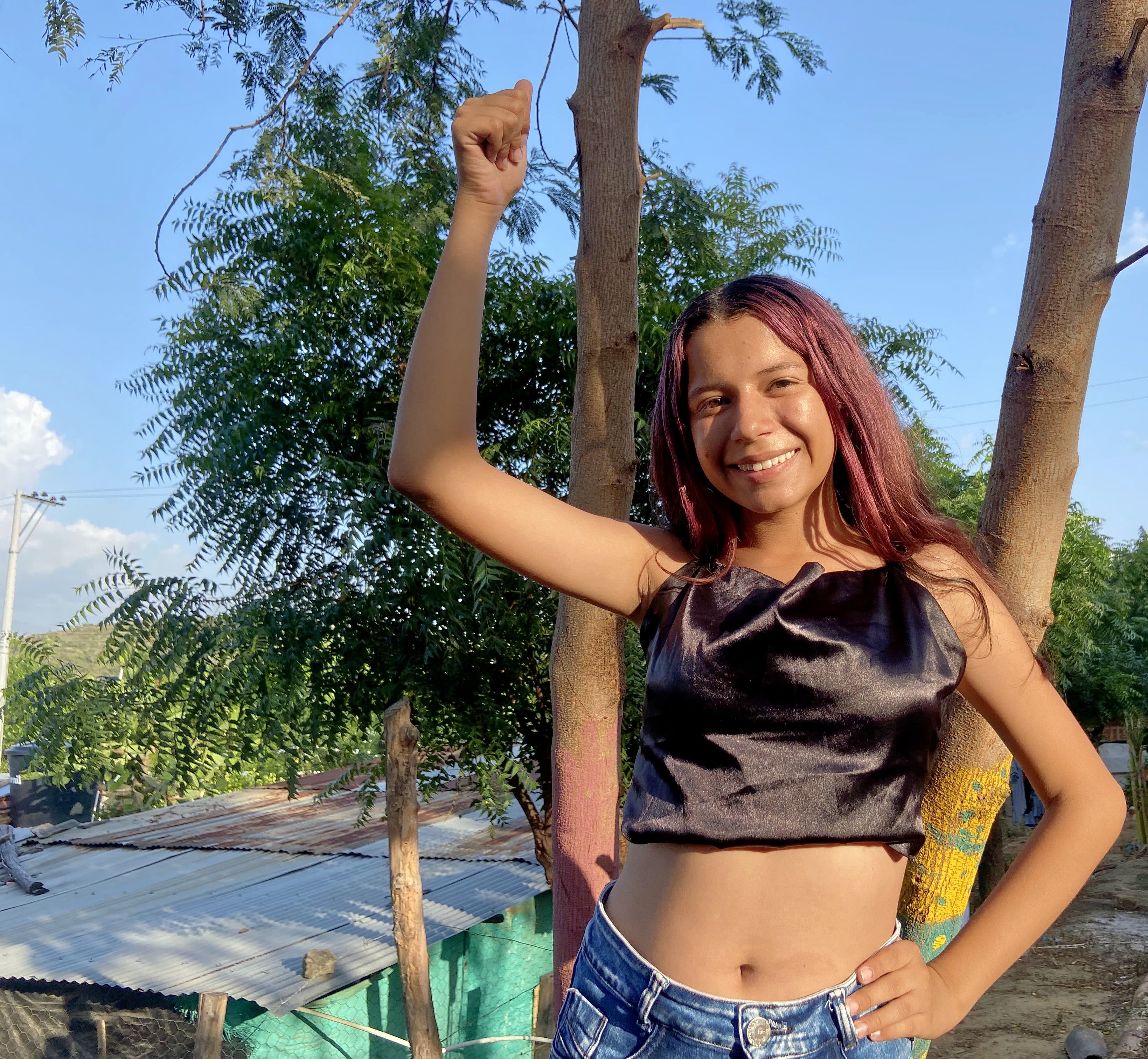
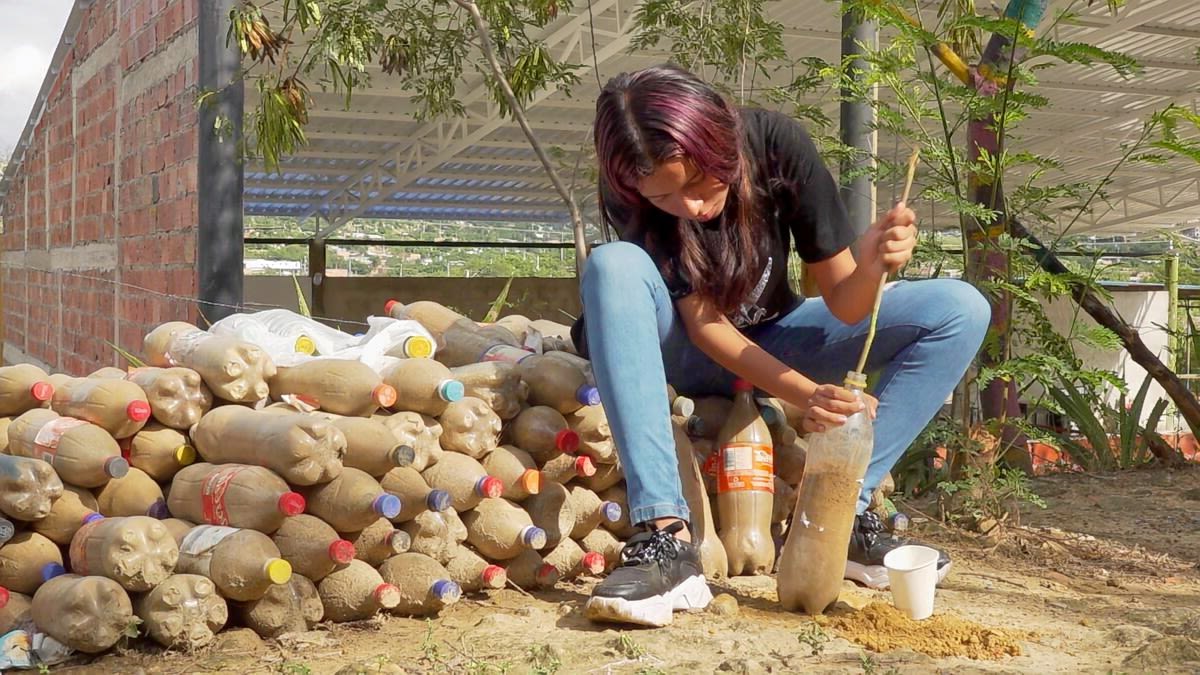
ASAAD
THE CLIMATE ADVOCATE
Asaad has a very personal motivation to advocate for children affected by climate change all around the world.
In 2021, devastating floods washed through Asaad’s home in Sudan, causing injuries, deaths and stopping children like him from going to school.
As a result, Asaad’s family felt they had no choice but to leave Sudan for Cairo, Egypt where he now lives .
With Save the Children’s support, Asaad travelled to COP 27 to tell his story and call on world leaders to take urgent climate action for children.
Children shouldn’t suffer because of floods. I don't want other children to be affected by climate change.
Although sharing his story wasn’t easy, Asaad felt he had to tell it so that leaders find solutions so that children don’t suffer like he did.
Asaad, 13, Sudanese Climate Child Advocate in Egypt for COP27
Asaad, 13, Sudanese Climate Child Advocate in Egypt for COP27
Asaad hopes to continue to see children attending COP and leaders listening to their demands and acting upon them to protect children's futures.
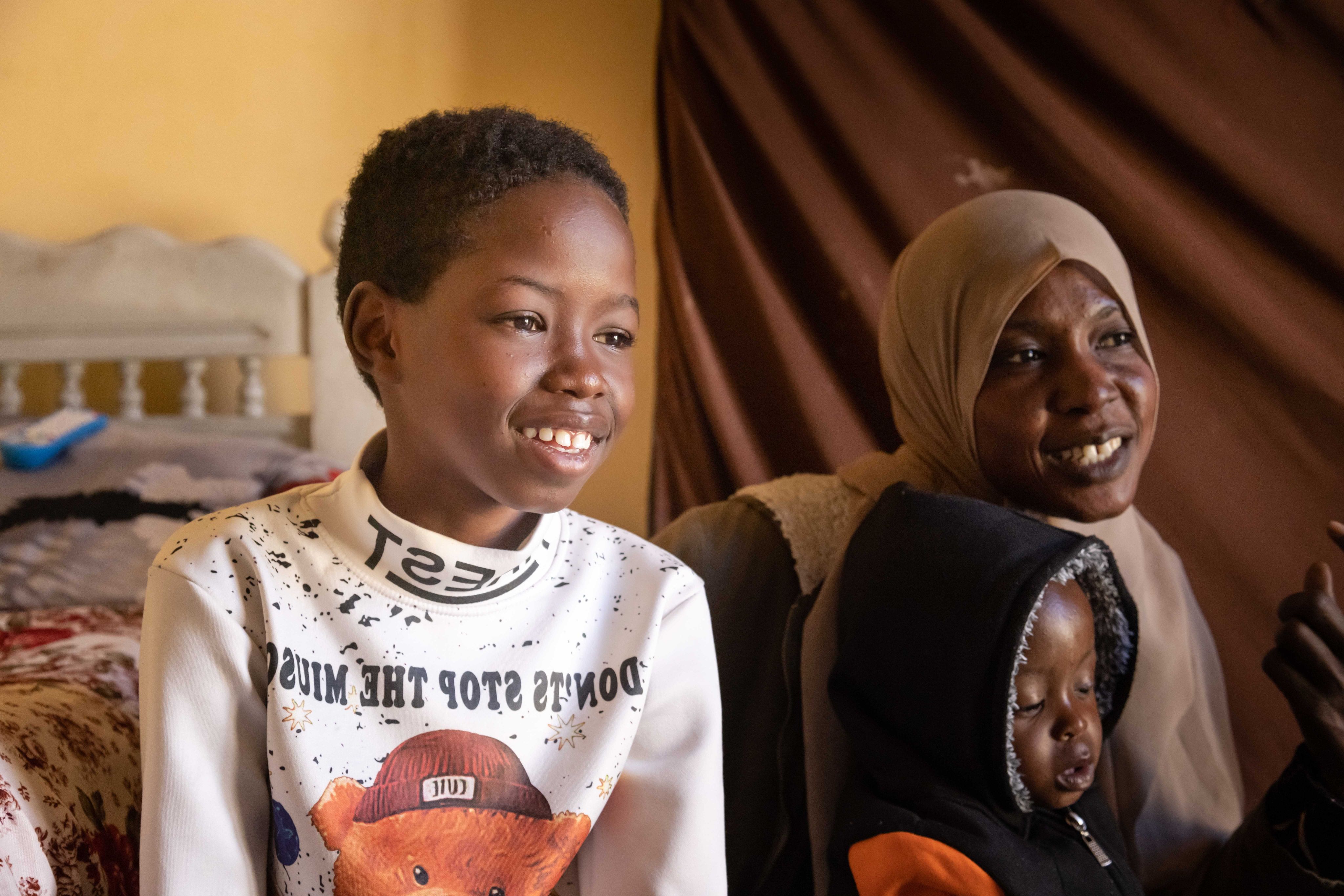
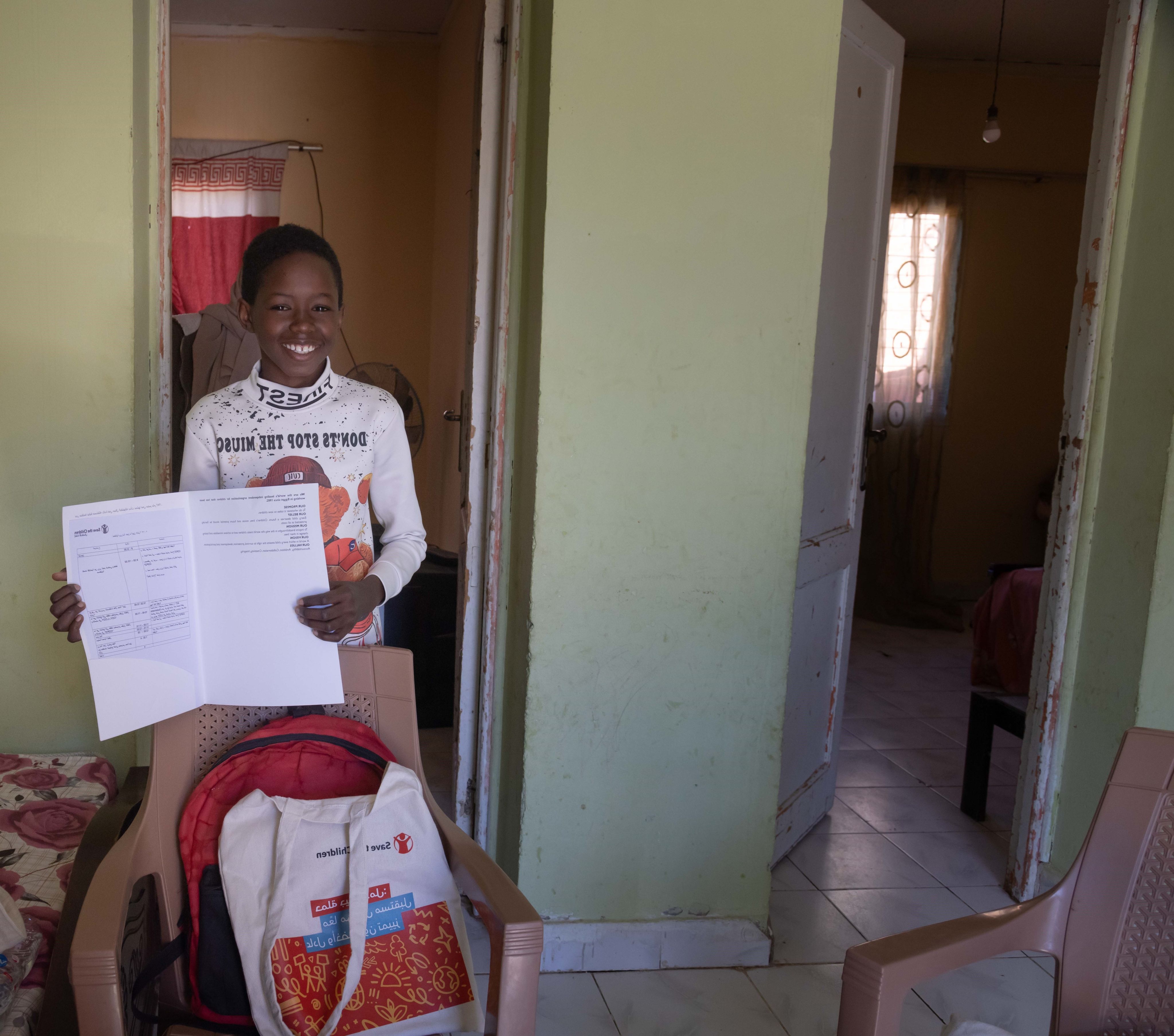
OLT
THE CLIMATE CAMPAIGNER
16-year-old Olt is a climate activist from Prishtina, Kosovo.
He is the chair of the Commission on the Environment of child-led group Respect Our Rights, which is supported by Save the Children.
Olt helps to organise and participates in activities that promote environmental awareness. This includes everything from environment clean-ups, recycling initiatives and marches.
So, to fix climate change is not something easy, but it's not something impossible. If every individual on this earth would take small action, just small actions, climate change would have been way, way much better.
Olt also believes world leaders must make laws that are more aligned with protecting the planet.
He also believes that children are the best hope for the future and that is why world leaders must start listening to them!
Children are changing the world by raising their voices and making their voice heard.
Children like Olt are speaking up and leading the way towards a better world, and it’s time for world leaders to follow their lead.
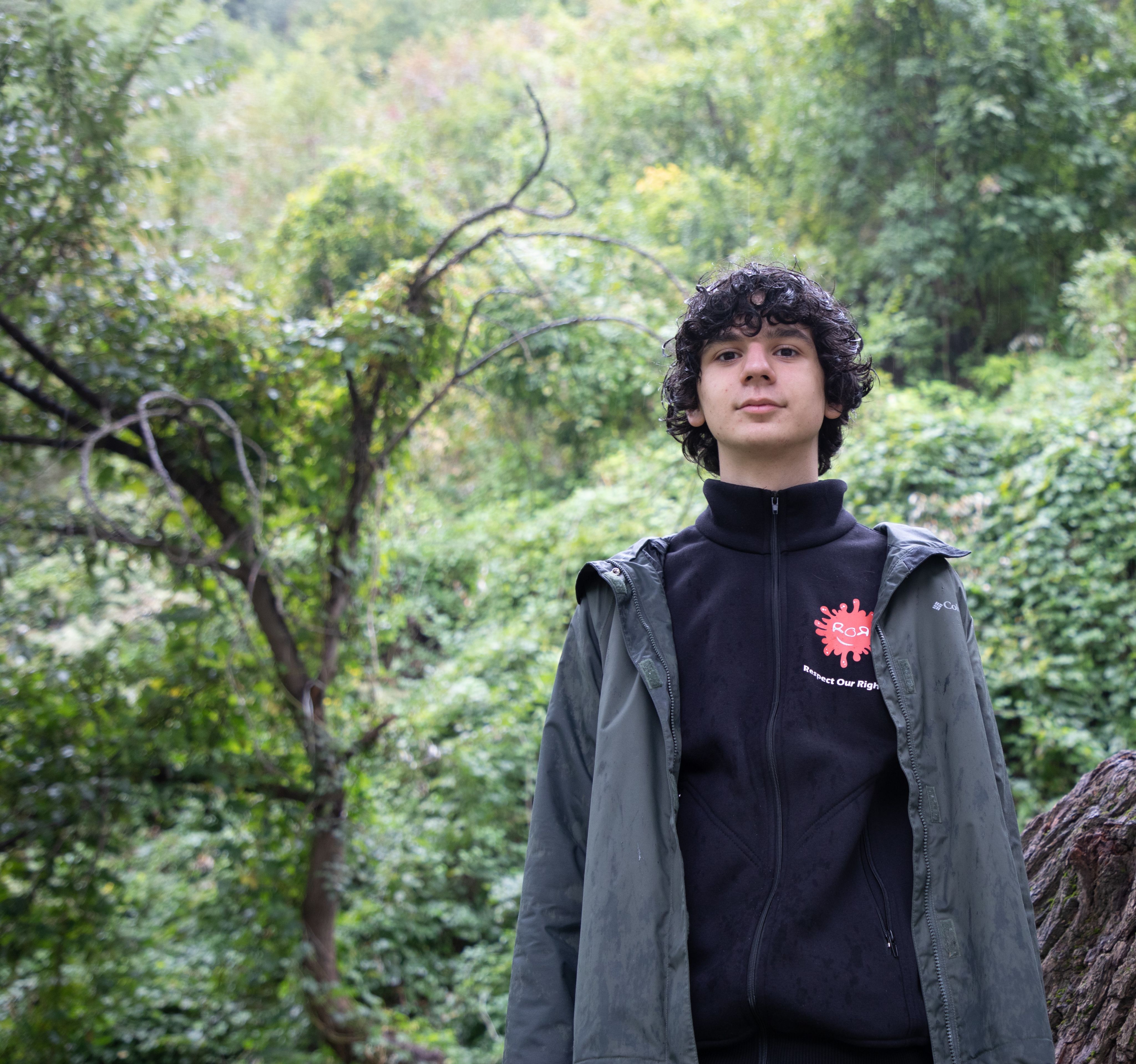
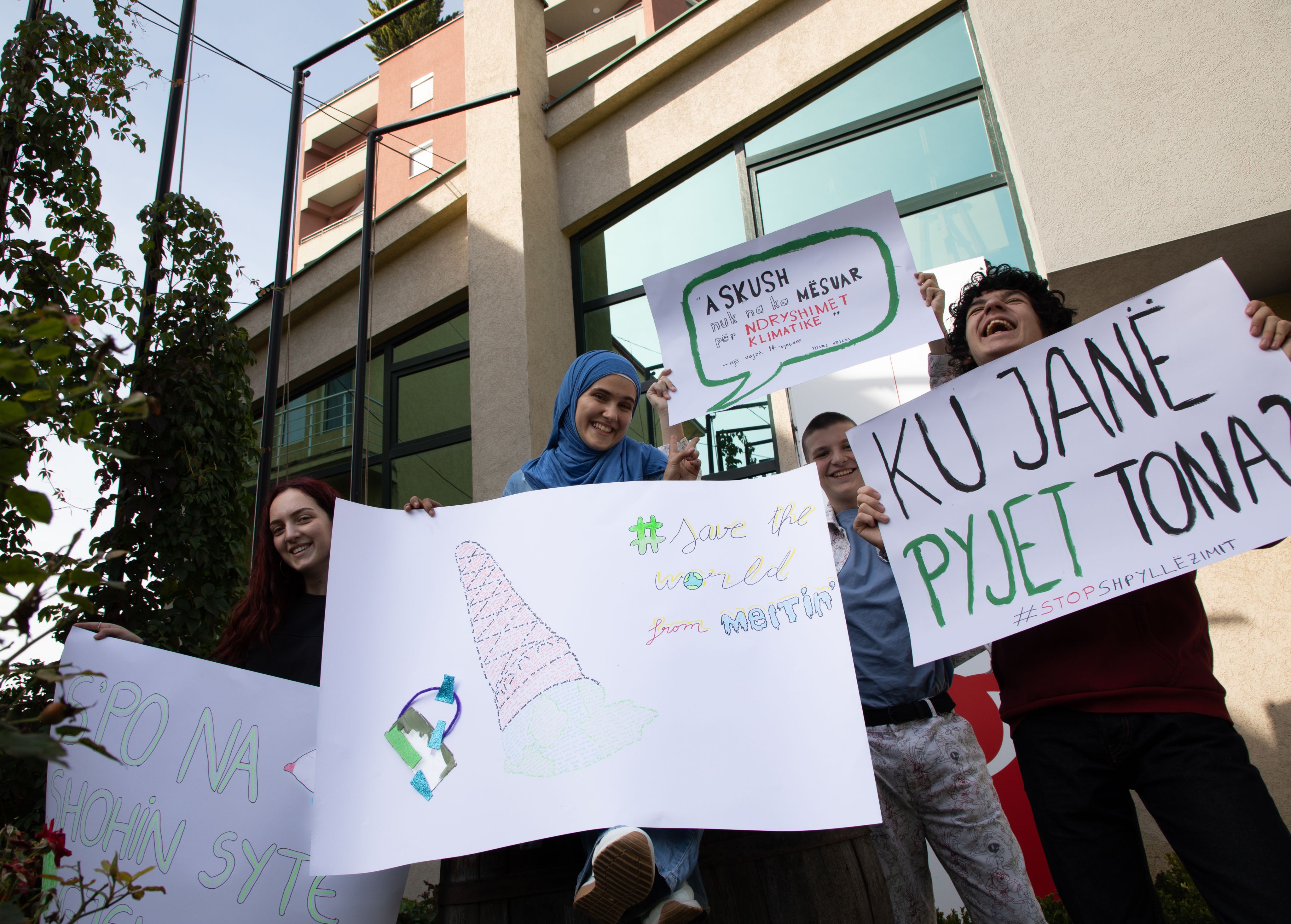
World leaders must deliver climate justice by turning their promises into action once and for all.
What we're demanding from world leaders
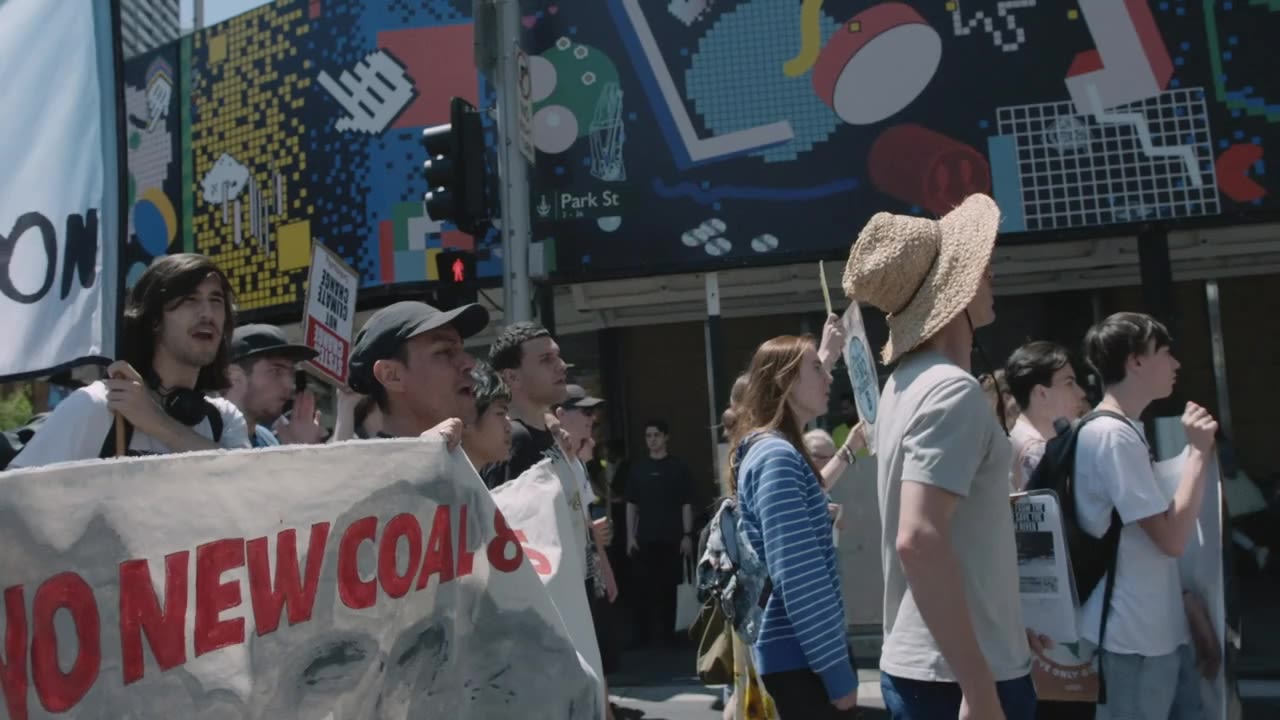
The climate crisis is a global injustice that affects every aspect of children’s lives. But there’s still time to change course.
World leaders have an opportunity to put children first.
Together with children, we are calling on world leaders to put children and their rights at the heart of climate action.
By putting their needs and rights first, we’ll tackle climate and inequality crises and secure a bright future for all children, everywhere.
But we can’t do this without political will and the financial investments to turn ideas into action.
What we’re calling for world leaders to:
- Recognise children as a priority group in climate negotiations, policies, and finance.
- Guarantee the meaningful participation of children in decision-making.
- Phase out fossil fuels urgently and equitably, in line with the 1.5°C goal.
- Invest in climate-resilient services – including health, education, water, nutrition, and child protection.
- Increase research and address the data gaps to reveal the true impacts of climate change on children.
Under international law and the Paris Agreement, governments are legally bound to protect children’s rights through decisive climate action. And high-income countries and historical emitters have a moral obligation to step-up and support lower-income countries to safeguard children’s futures through a just, green transition to renewable energies.
Children cannot wait. Leaders must finally turn promises into action and deliver the climate justice every child deserves.
